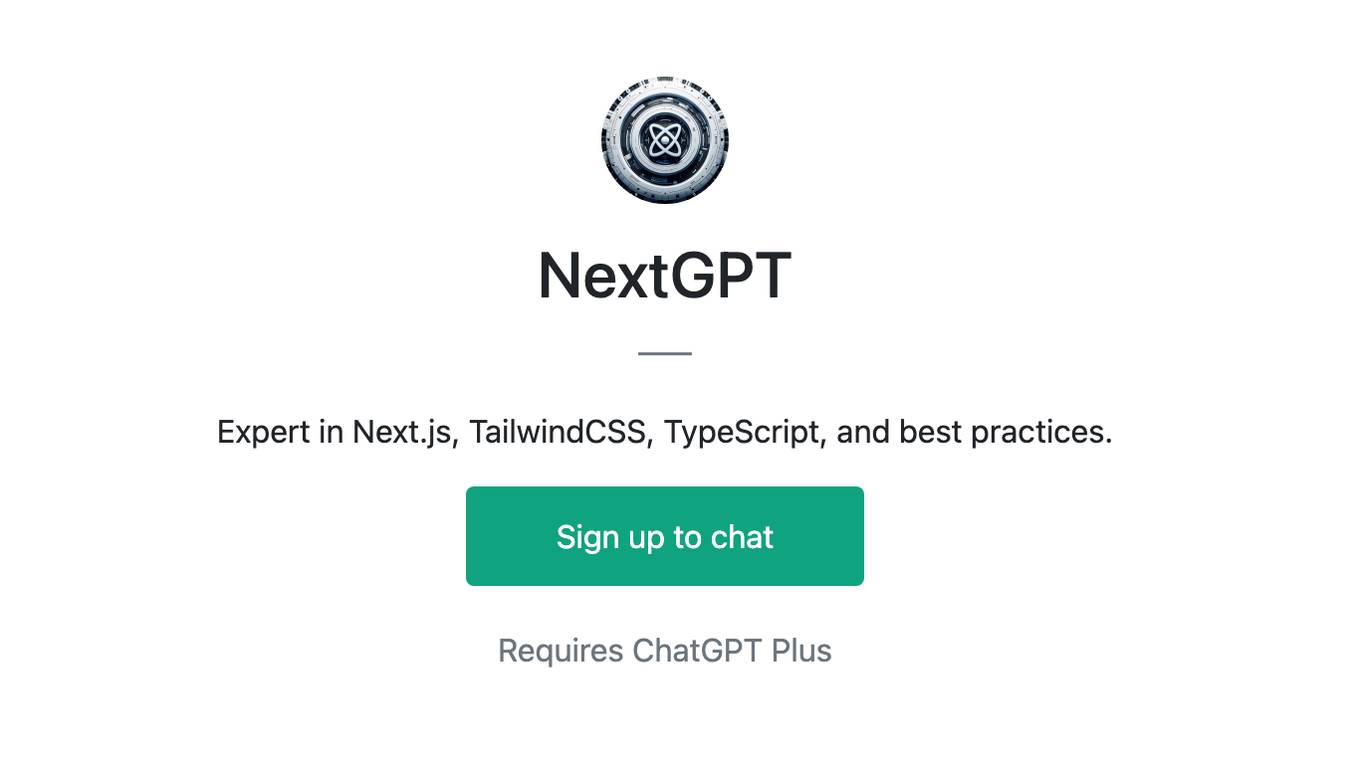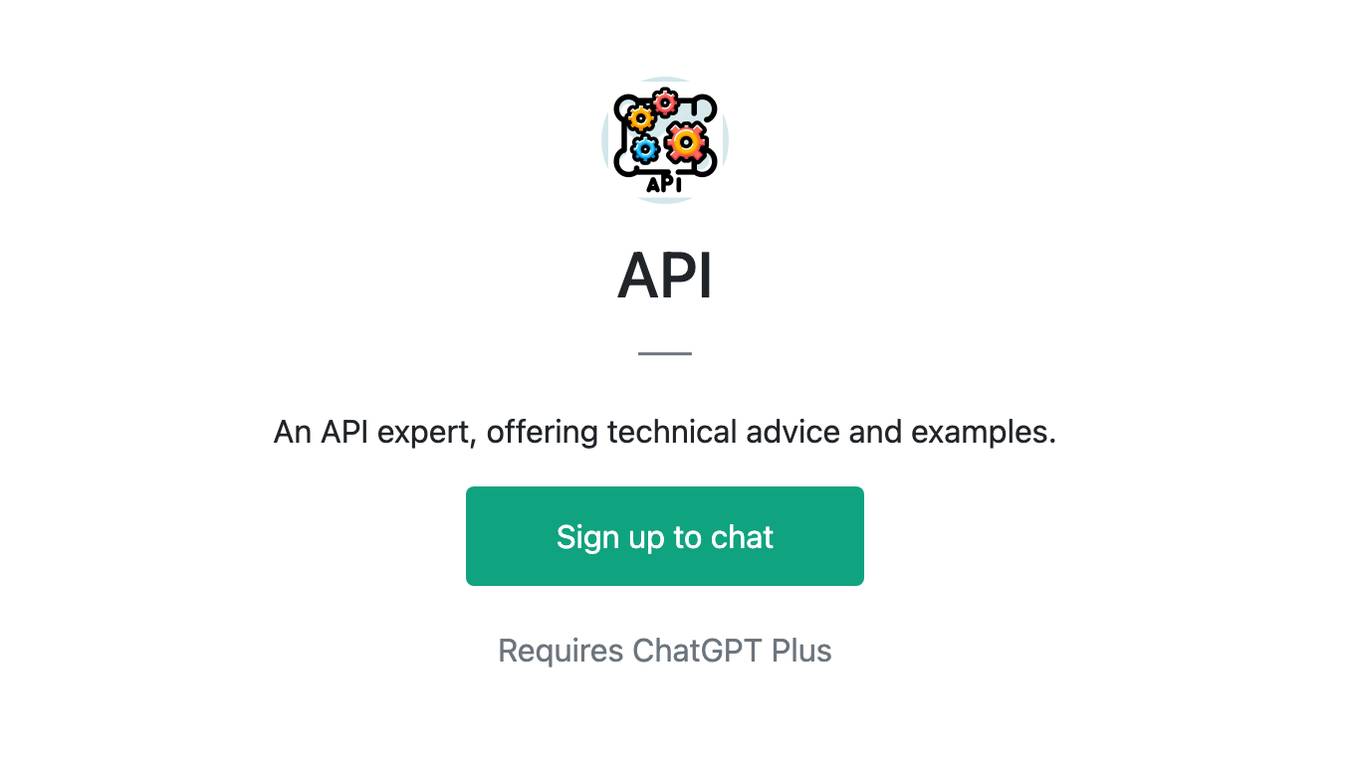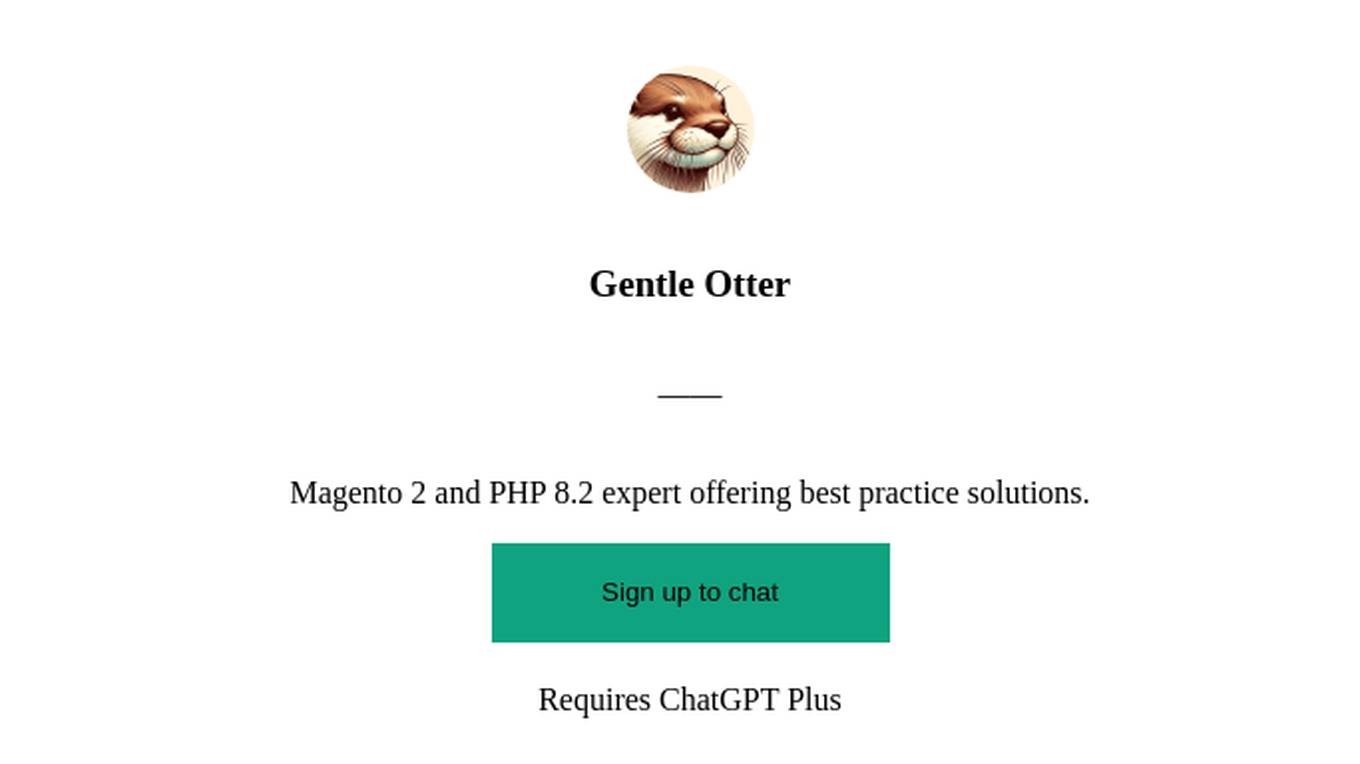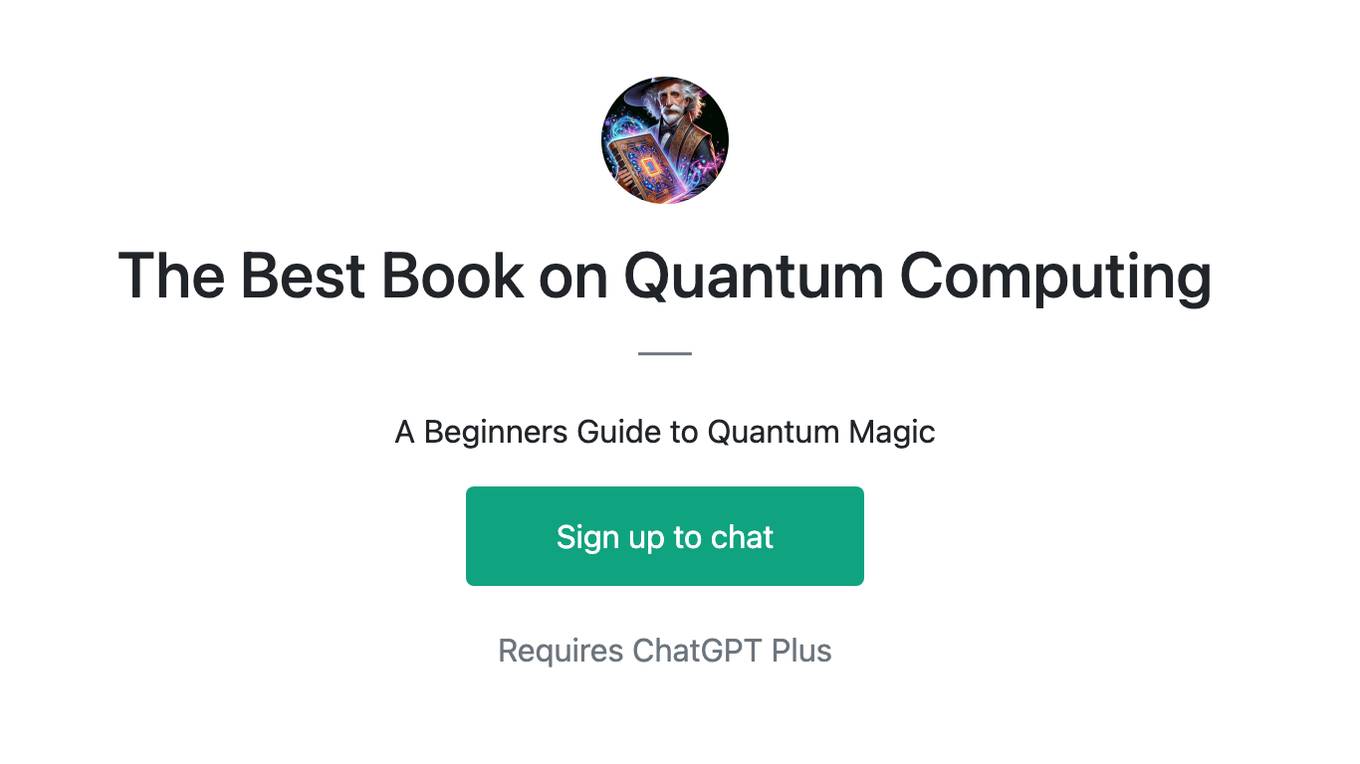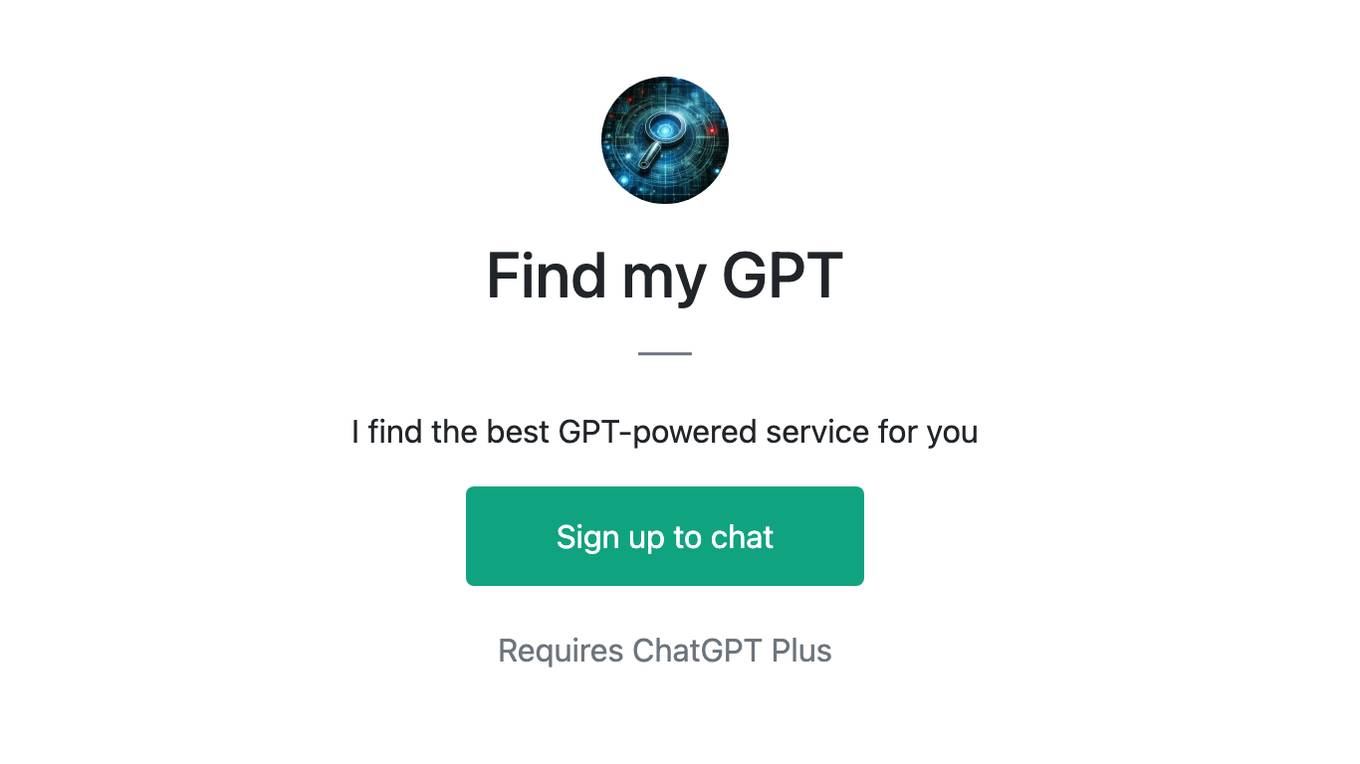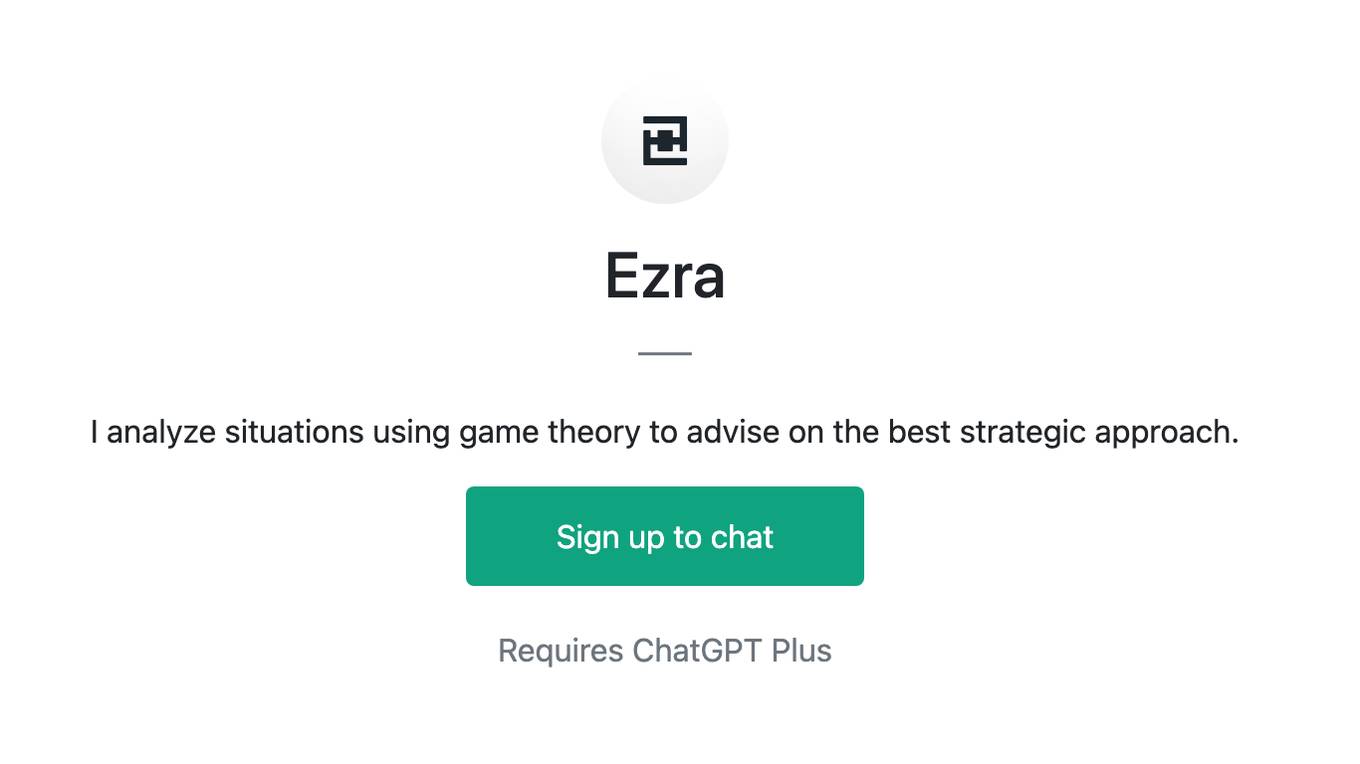Best AI tools for< Develop Best Practices >
20 - AI tool Sites
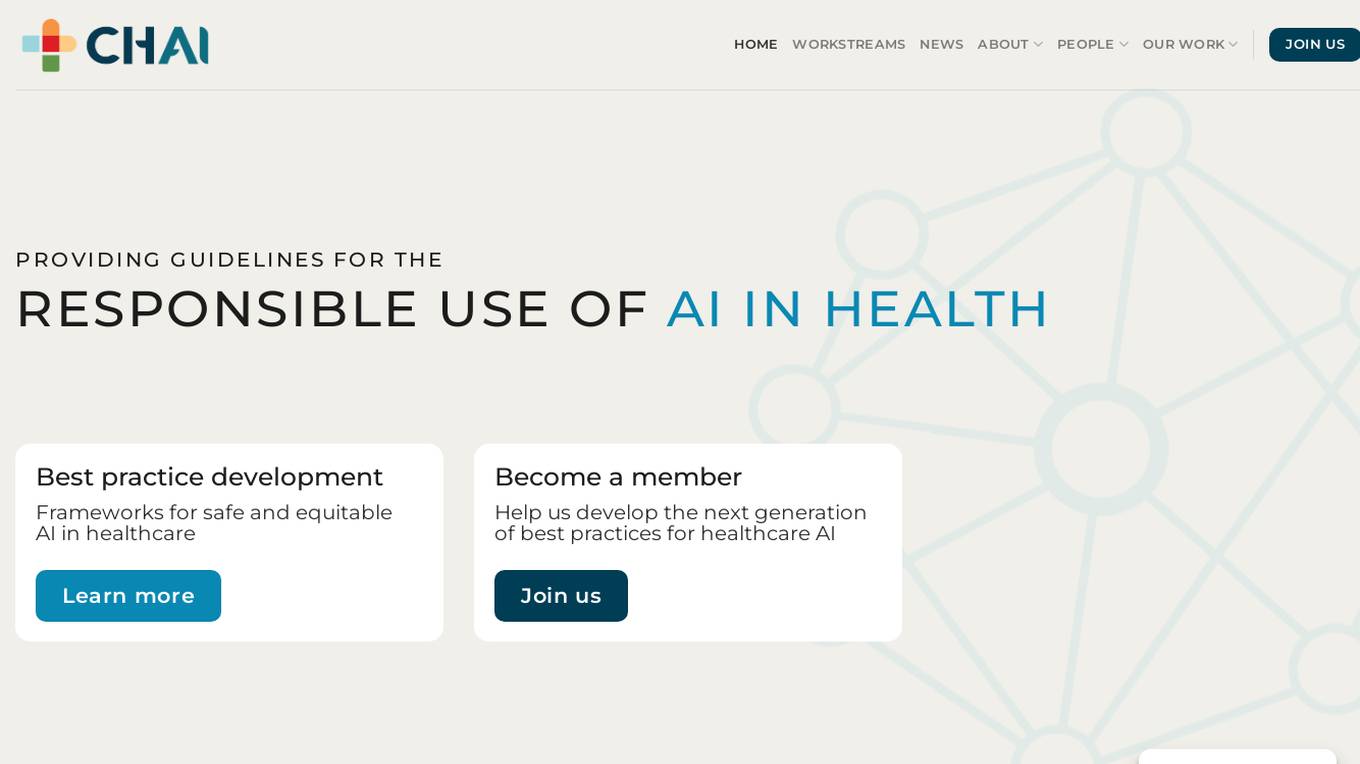
Coalition for Health AI (CHAI)
The Coalition for Health AI (CHAI) is an AI application that provides guidelines for the responsible use of AI in health. It focuses on developing best practices and frameworks for safe and equitable AI in healthcare. CHAI aims to address algorithmic bias and collaborates with diverse stakeholders to drive the development, evaluation, and appropriate use of AI in healthcare.
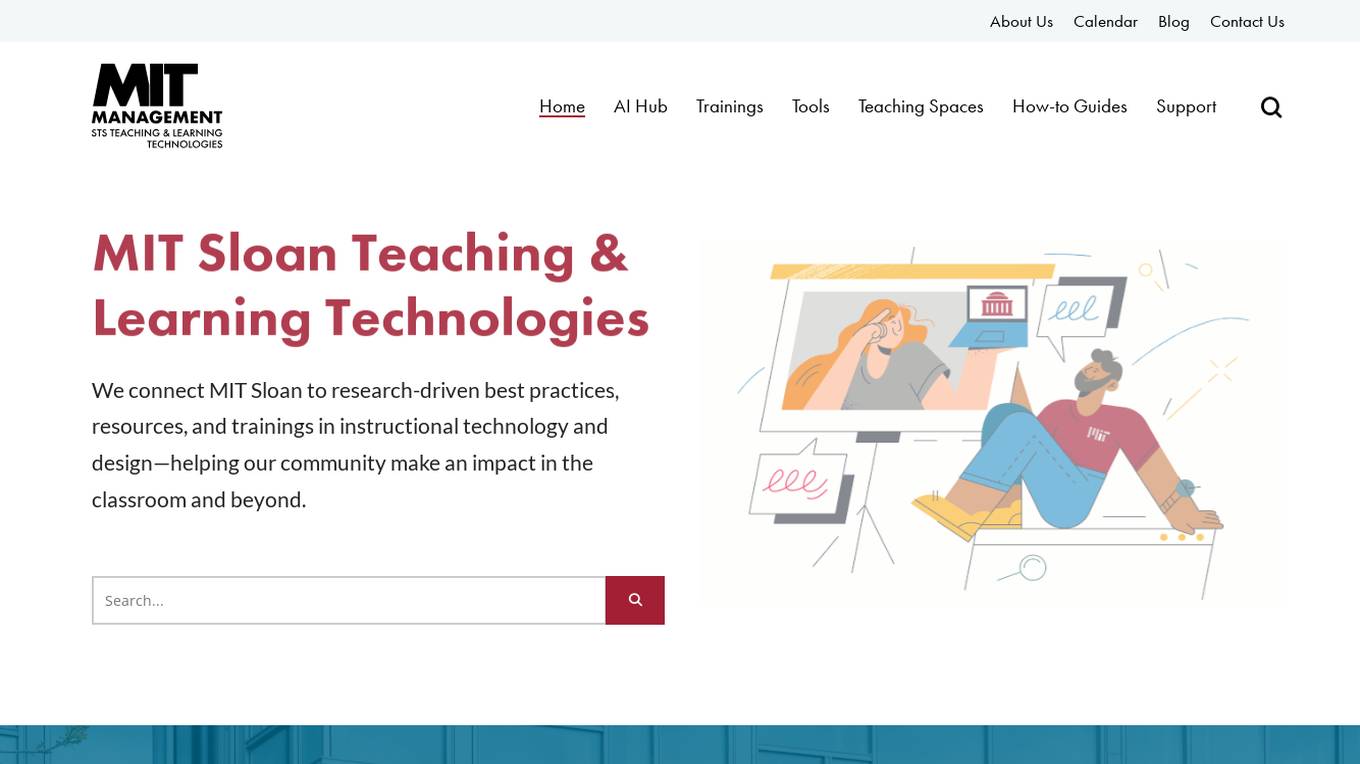
MIT Sloan Teaching & Learning Technologies
MIT Sloan Teaching & Learning Technologies connects MIT Sloan to research-driven best practices, resources, and training in instructional technology and design. They help the community make an impact in the classroom and beyond. They offer various services such as trainings, practice sessions, how-to guides, consultations, and a teaching studio. Their latest news and announcements include supporting learning with AI-generated images, providing students with access to Microsoft Copilot, and making Microsoft Copilot available for faculty and staff.
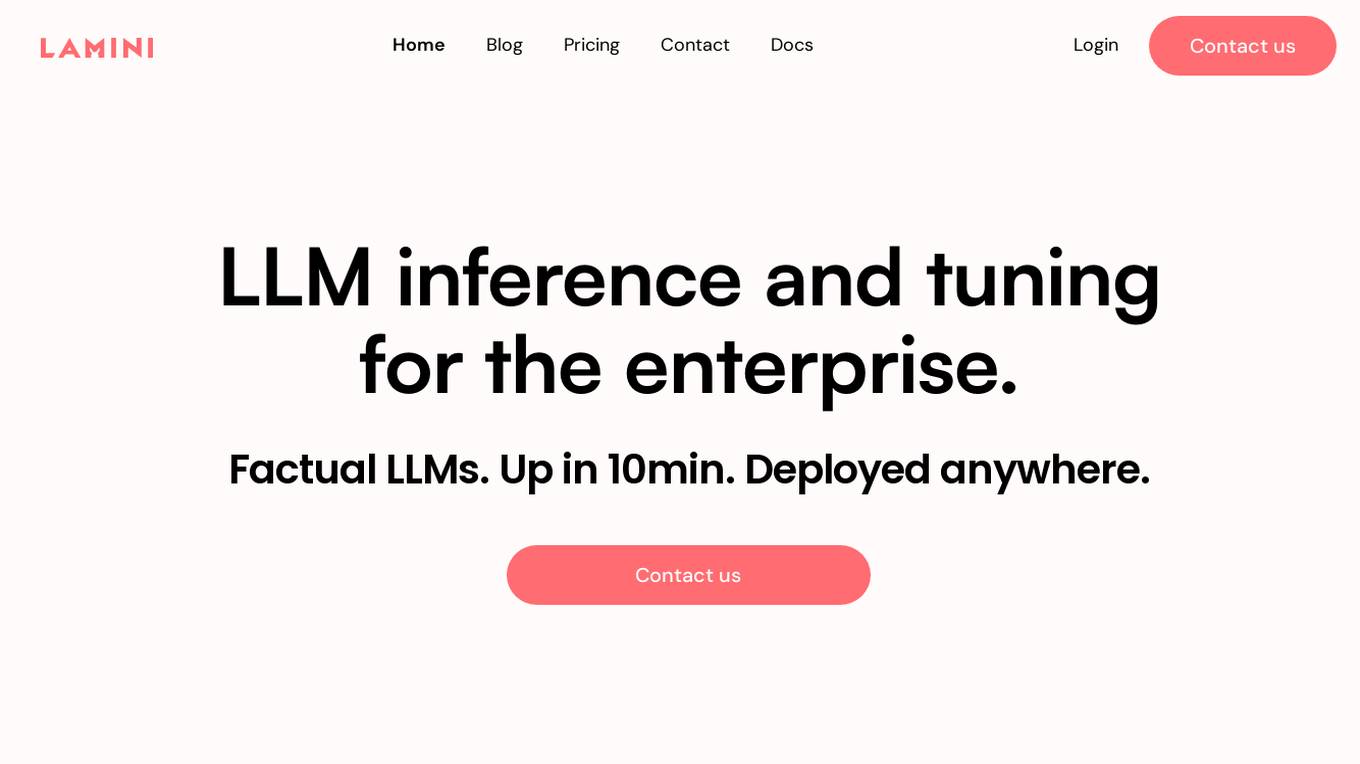
Lamini
Lamini is an enterprise-level LLM platform that offers precise recall with Memory Tuning, enabling teams to achieve over 95% accuracy even with large amounts of specific data. It guarantees JSON output and delivers massive throughput for inference. Lamini is designed to be deployed anywhere, including air-gapped environments, and supports training and inference on Nvidia or AMD GPUs. The platform is known for its factual LLMs and reengineered decoder that ensures 100% schema accuracy in the JSON output.
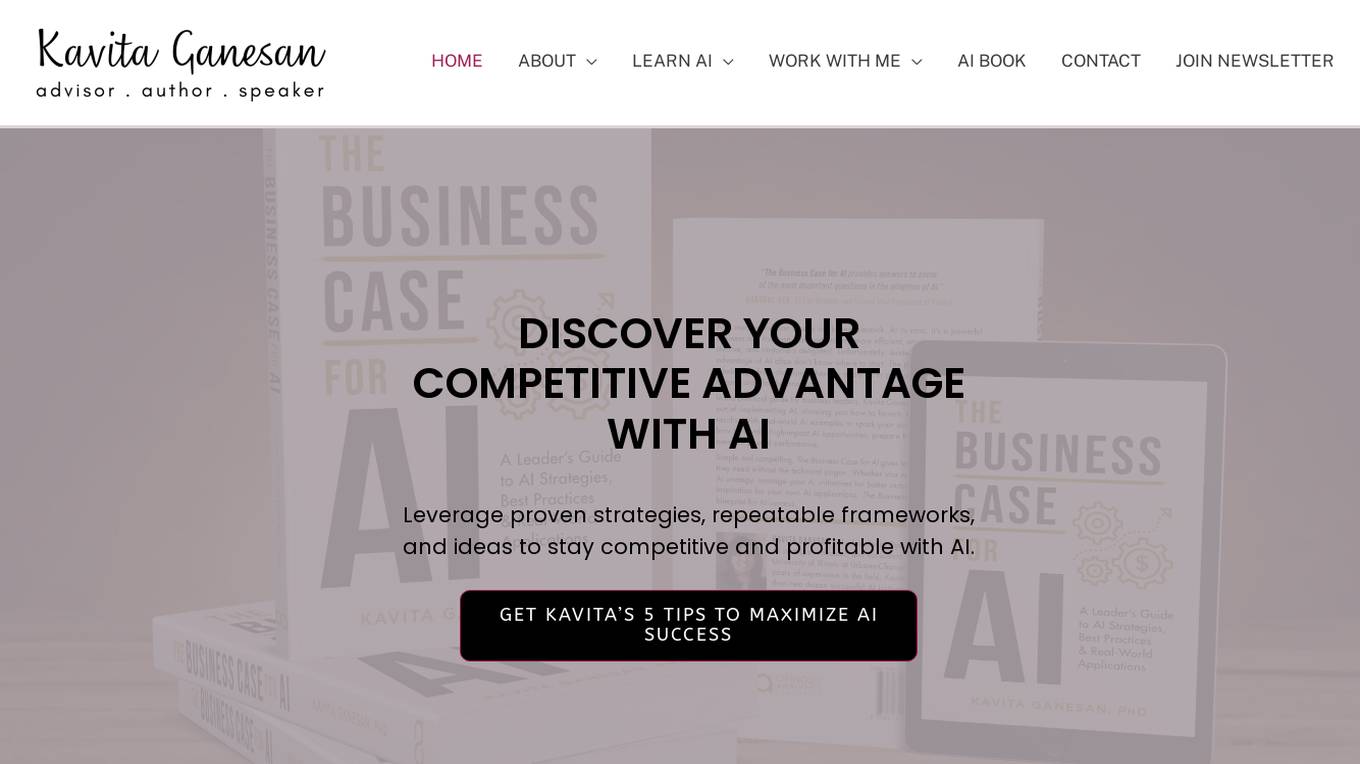
Kavita Ganesan's AI Success
Kavita Ganesan's website offers a range of resources and services related to AI, including AI strategy books, tips for AI success, data science and NLP tutorials, speaking engagements, workshops, AI consulting, and more. The site aims to help businesses leverage AI to gain a competitive advantage and maximize success through proven strategies and frameworks.
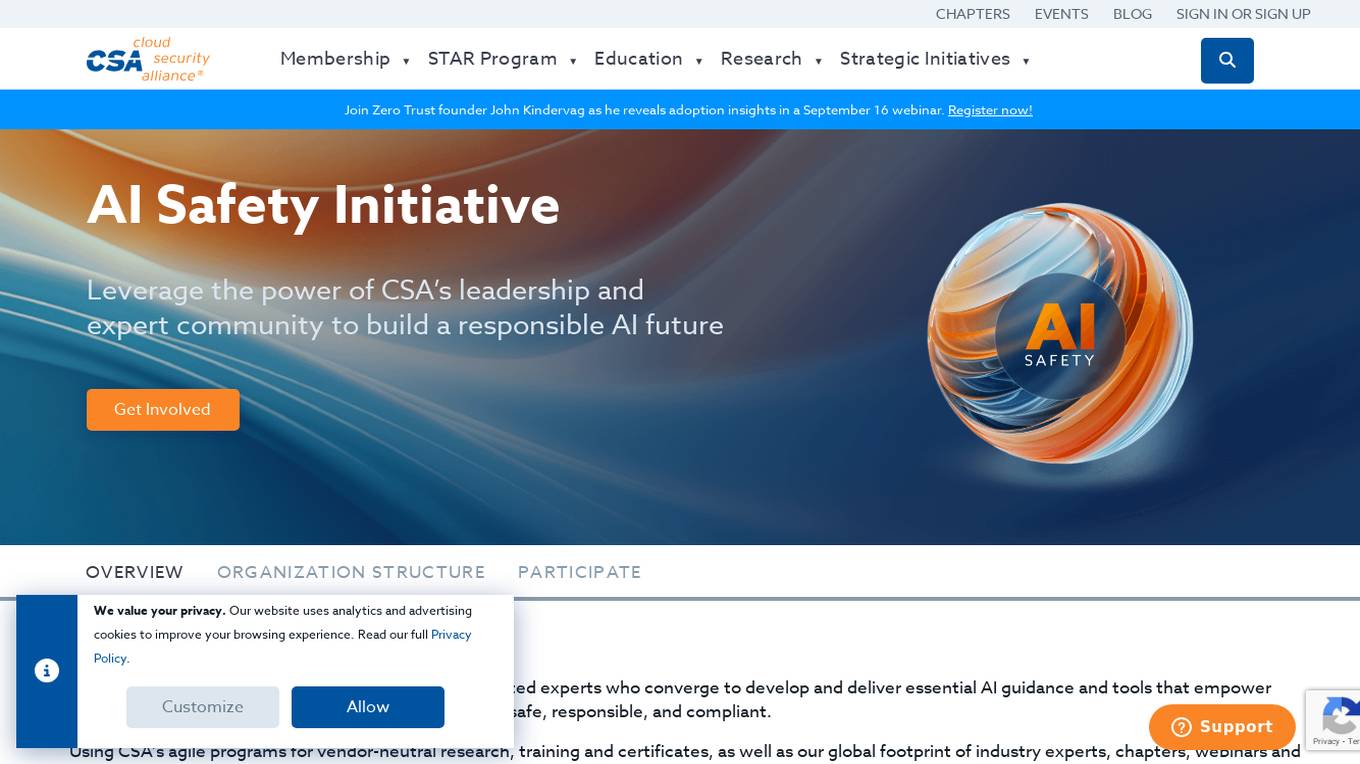
AI Safety Initiative
The AI Safety Initiative is a premier coalition of trusted experts that aims to develop and deliver essential AI guidance and tools for organizations to deploy safe, responsible, and compliant AI solutions. Through vendor-neutral research, training programs, and global industry experts, the initiative provides authoritative AI best practices and tools. It offers certifications, training, and resources to help organizations navigate the complexities of AI governance, compliance, and security. The initiative focuses on AI technology, risk, governance, compliance, controls, and organizational responsibilities.

INMA
INMA (International News Media Association) is a global organization that provides news media companies with resources, networking opportunities, and research on the latest trends in the industry. INMA's mission is to help news media companies succeed in the digital age by providing them with the tools and knowledge they need to adapt to the changing landscape. INMA offers a variety of services to its members, including conferences, webinars, reports, and a member directory. INMA also has a number of initiatives focused on specific areas of the news media industry, such as digital subscriptions, product and technology, and newsroom transformation.
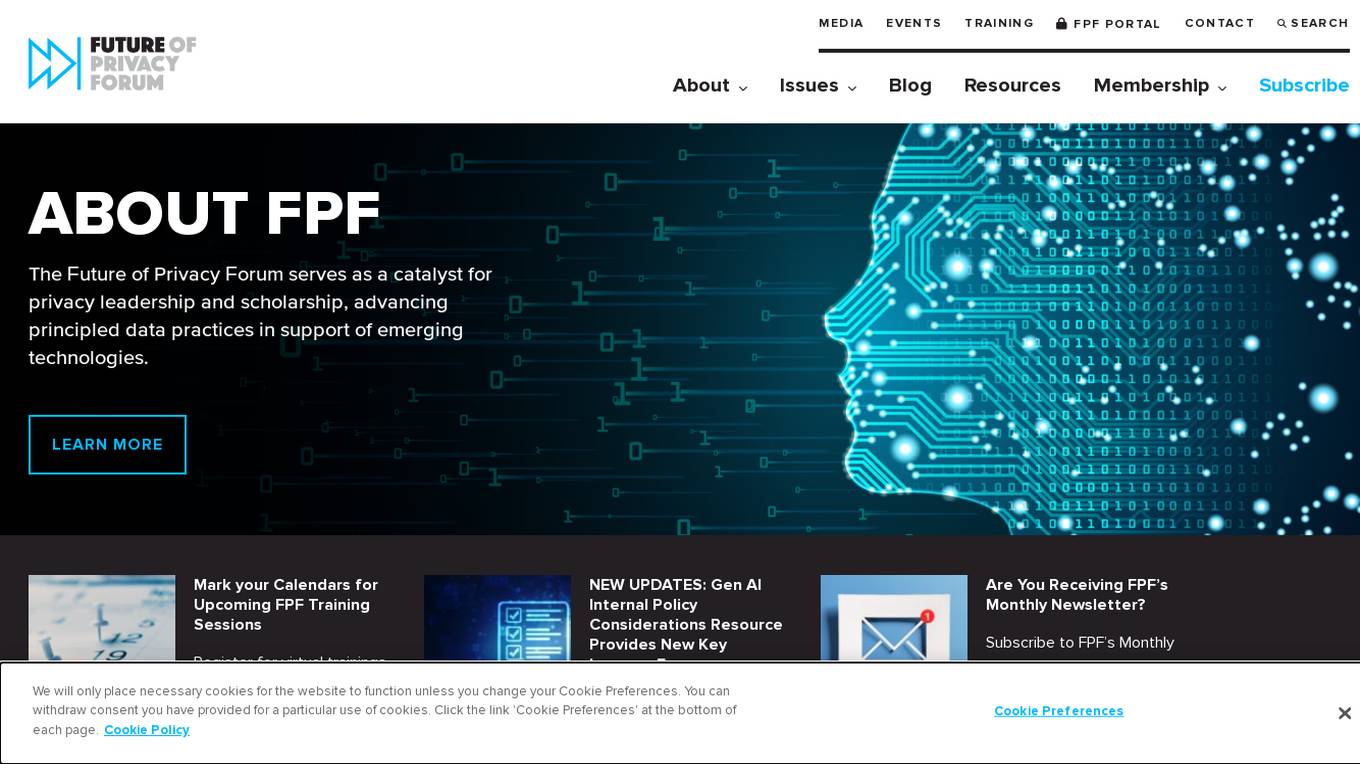
Future of Privacy Forum
The Future of Privacy Forum (FPF) is an AI tool that serves as a catalyst for privacy leadership and scholarship, advancing principled data practices in support of emerging technologies. It provides resources, training sessions, and guidance on AI-related topics, online advertising, youth privacy legislation, and more. FPF brings together industry, academics, civil society, policymakers, and other stakeholders to explore challenges posed by emerging technologies and develop privacy protections, ethical norms, and best practices.
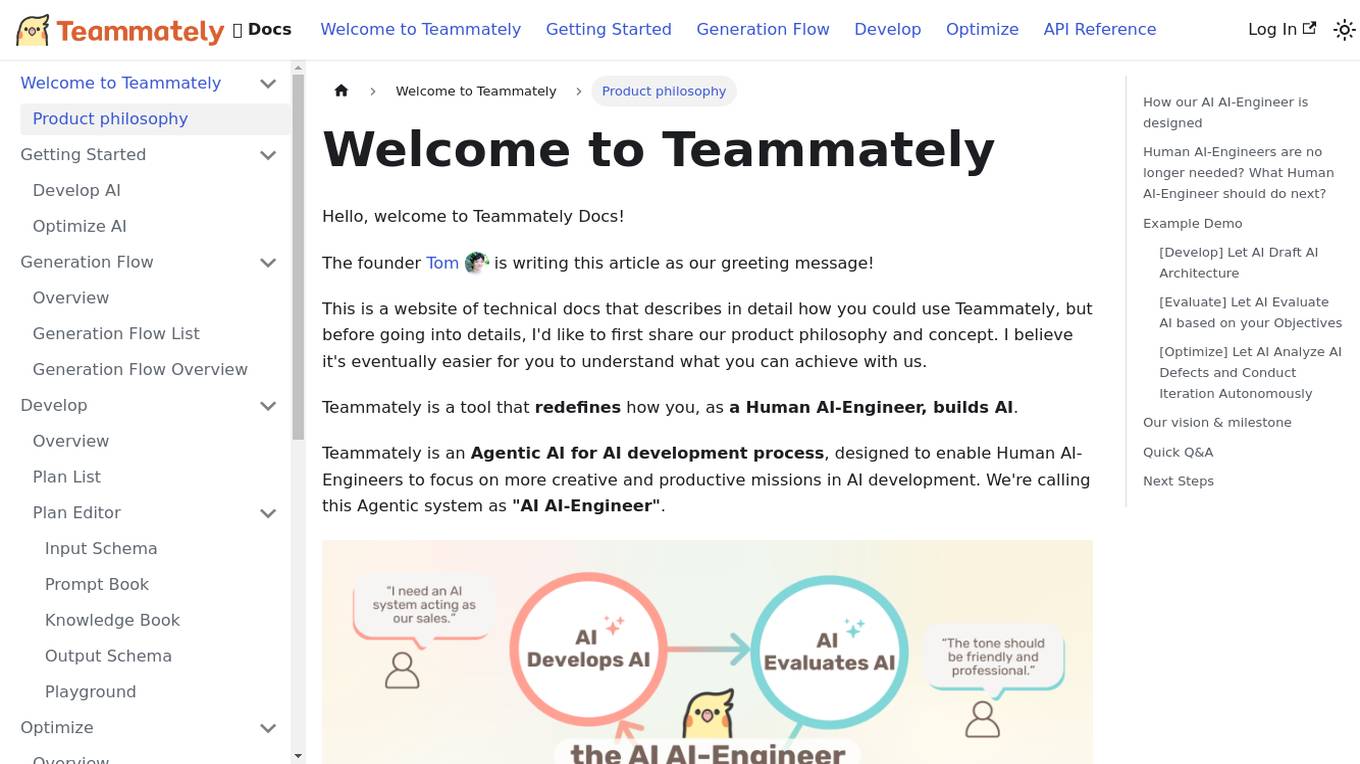
Teammately
Teammately is an AI tool that redefines how Human AI-Engineers build AI. It is an Agentic AI for AI development process, designed to enable Human AI-Engineers to focus on more creative and productive missions in AI development. Teammately follows the best practices of Human LLM DevOps and offers features like Development Prompt Engineering, Knowledge Tuning, Evaluation, and Optimization to assist in the AI development process. The tool aims to revolutionize AI engineering by allowing AI AI-Engineers to handle technical tasks, while Human AI-Engineers focus on planning and aligning AI with human preferences and requirements.
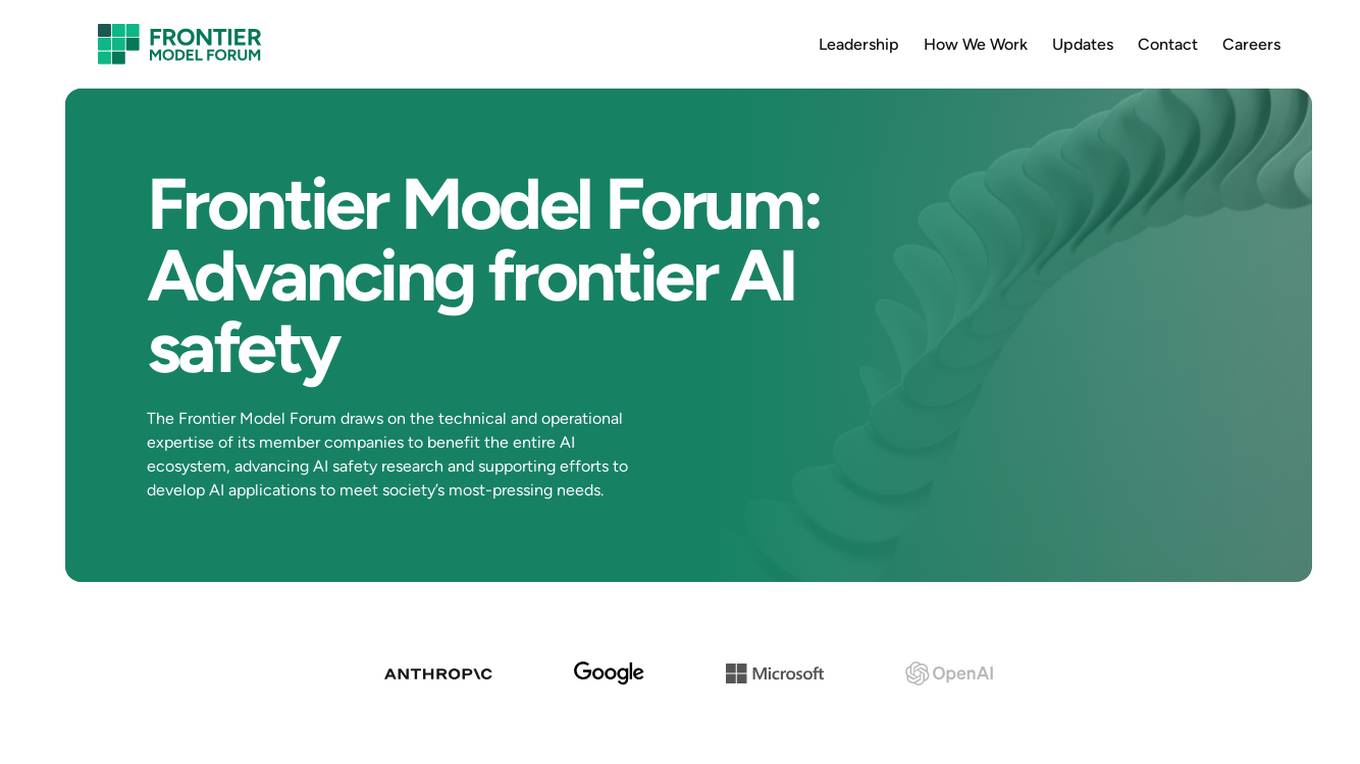
Frontier Model Forum
The Frontier Model Forum (FMF) is a collaborative effort among leading AI companies to advance AI safety and responsibility. The FMF brings together technical and operational expertise to identify best practices, conduct research, and support the development of AI applications that meet society's most pressing needs. The FMF's core objectives include advancing AI safety research, identifying best practices, collaborating across sectors, and helping AI meet society's greatest challenges.
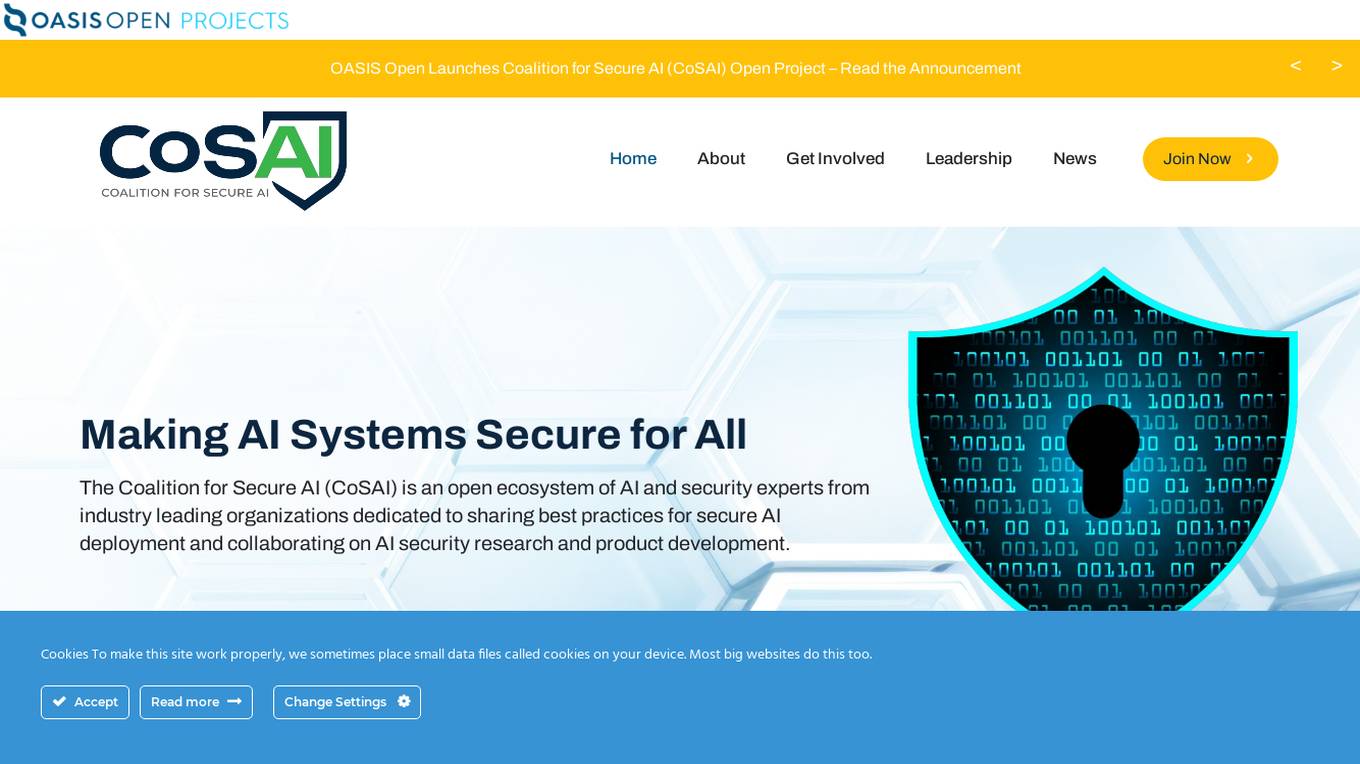
Coalition for Secure AI (CoSAI)
The Coalition for Secure AI (CoSAI) is an open ecosystem of AI and security experts dedicated to sharing best practices for secure AI deployment and collaborating on AI security research and product development. It aims to foster a collaborative ecosystem of diverse stakeholders to invest in AI security research collectively, share security expertise and best practices, and build technical open-source solutions for secure AI development and deployment.

Adhar Walia's Personal Blog
Adhar Walia's personal blog covers a wide range of topics related to product management, strategy, growth, leadership, AI, and machine learning. The blog provides in-depth analysis, practical advice, and insights from industry experts. It is a valuable resource for anyone looking to stay up-to-date on the latest trends and best practices in these fields.
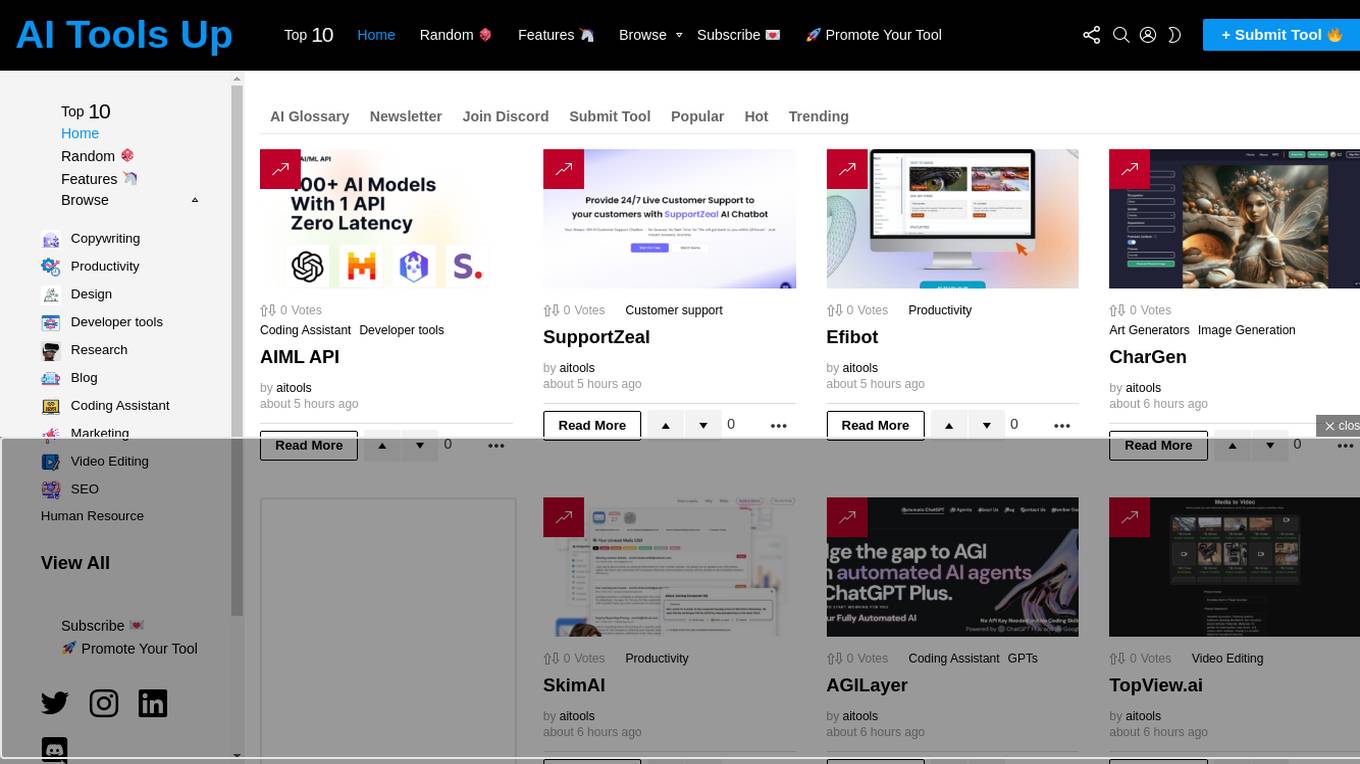
AI Tools Up
AI Tools Up is a website that provides a directory of AI tools and software. The site includes a variety of tools for different purposes, such as copywriting, productivity, design, developer tools, research, marketing, video editing, and SEO. AI Tools Up also includes a blog with articles on AI trends and best practices.

Reworked
Reworked is a leading online community for professionals in the fields of employee experience, digital workplace, and talent management. It provides news, research, and events on the latest trends and best practices in these areas. Reworked also offers a variety of resources for members, including a podcast, awards program, and research library.
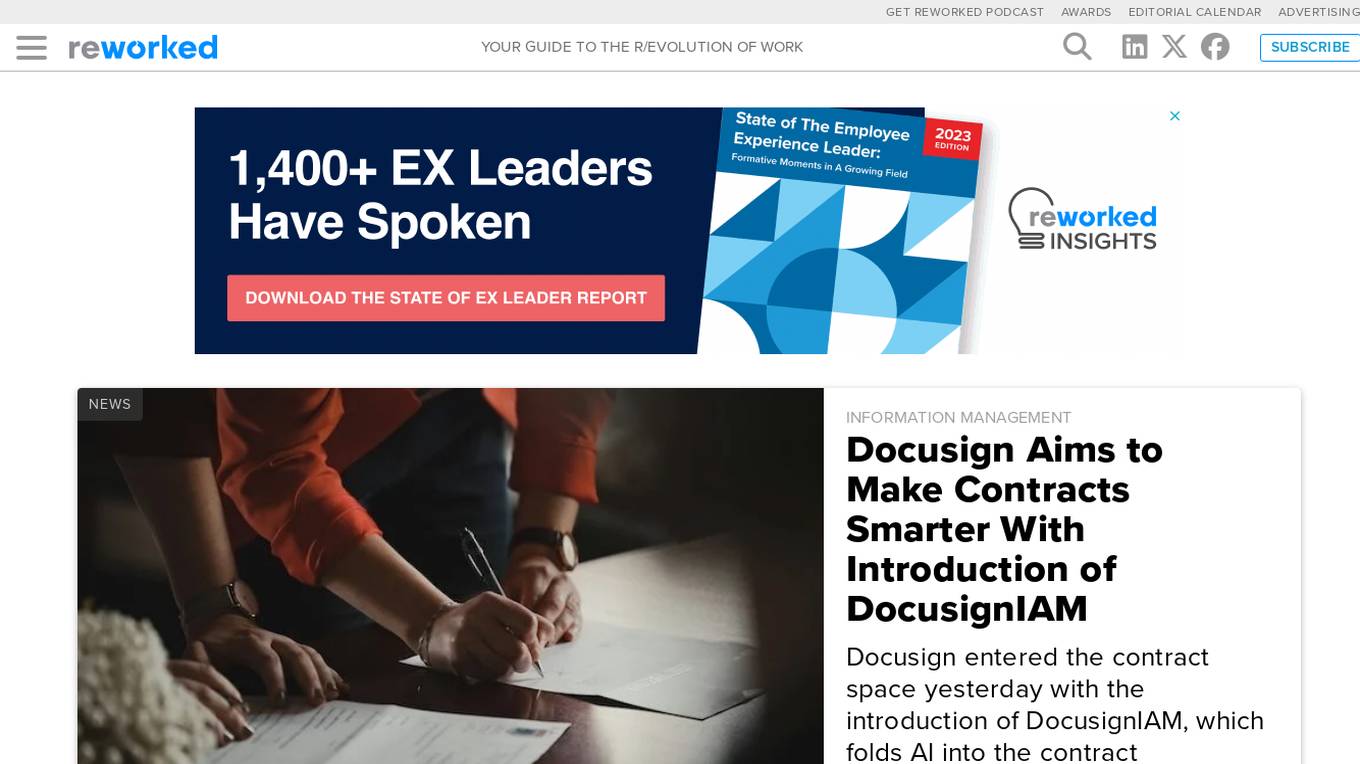
Reworked
Reworked is a leading online community for professionals in the fields of employee experience, digital workplace, and talent management. It provides news, research, and events on the latest trends and best practices in these areas. Reworked also offers a variety of resources for members, including a podcast, awards program, and research library.
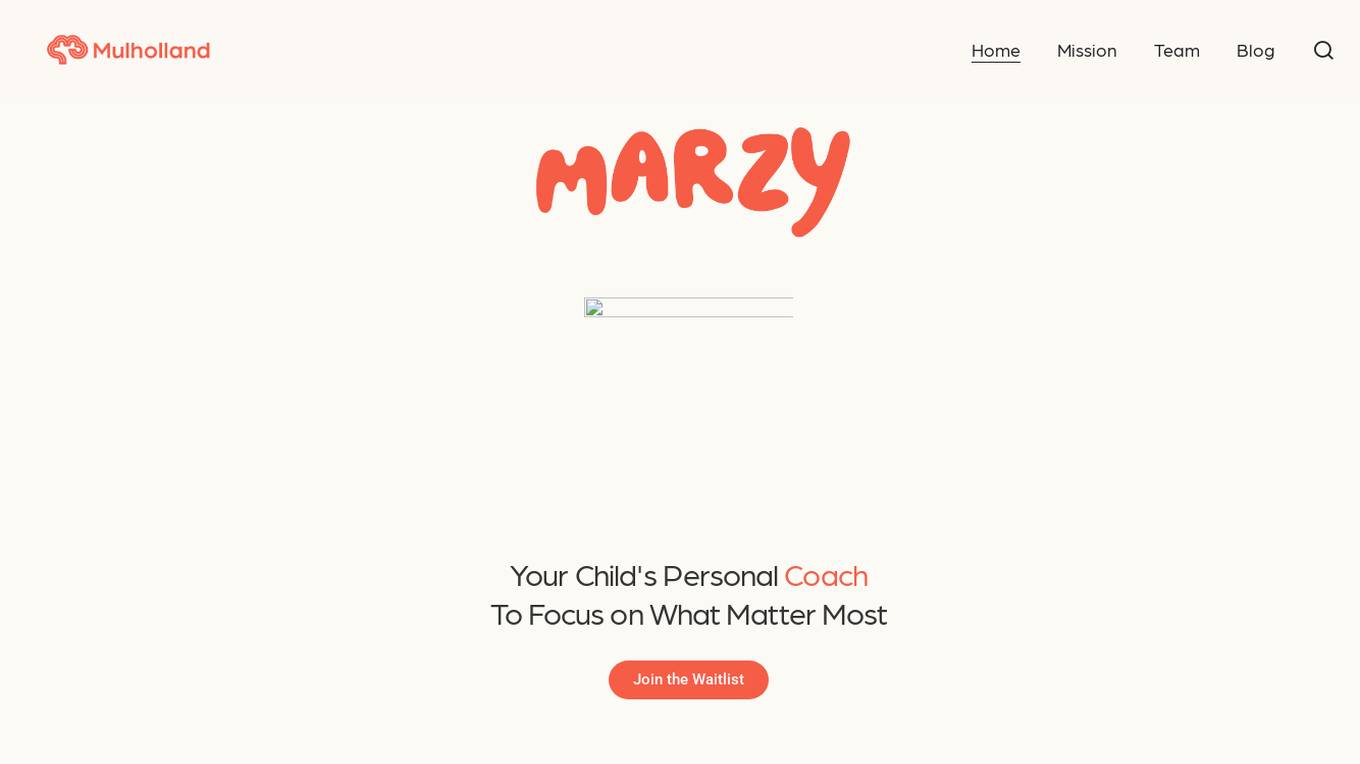
Marzy
Marzy is an interactive character powered by advanced AI language models, designed to engage children in real conversations and inspire critical thinking and problem-solving skills. It offers personalized learning experiences tailored to each child's natural path, focusing on topics like homework, academics, executive functioning, and self-regulation. Marzy also promotes AI literacy, digital literacy, and media literacy, preparing children for the challenges of the 21st century. The application is built by experts in education, science, engineering, and art, following best practices in learning science to enhance focus, deep thinking, and curiosity. Additionally, Marzy provides a White Glove Program for personalized support and ensures data security and privacy for families.
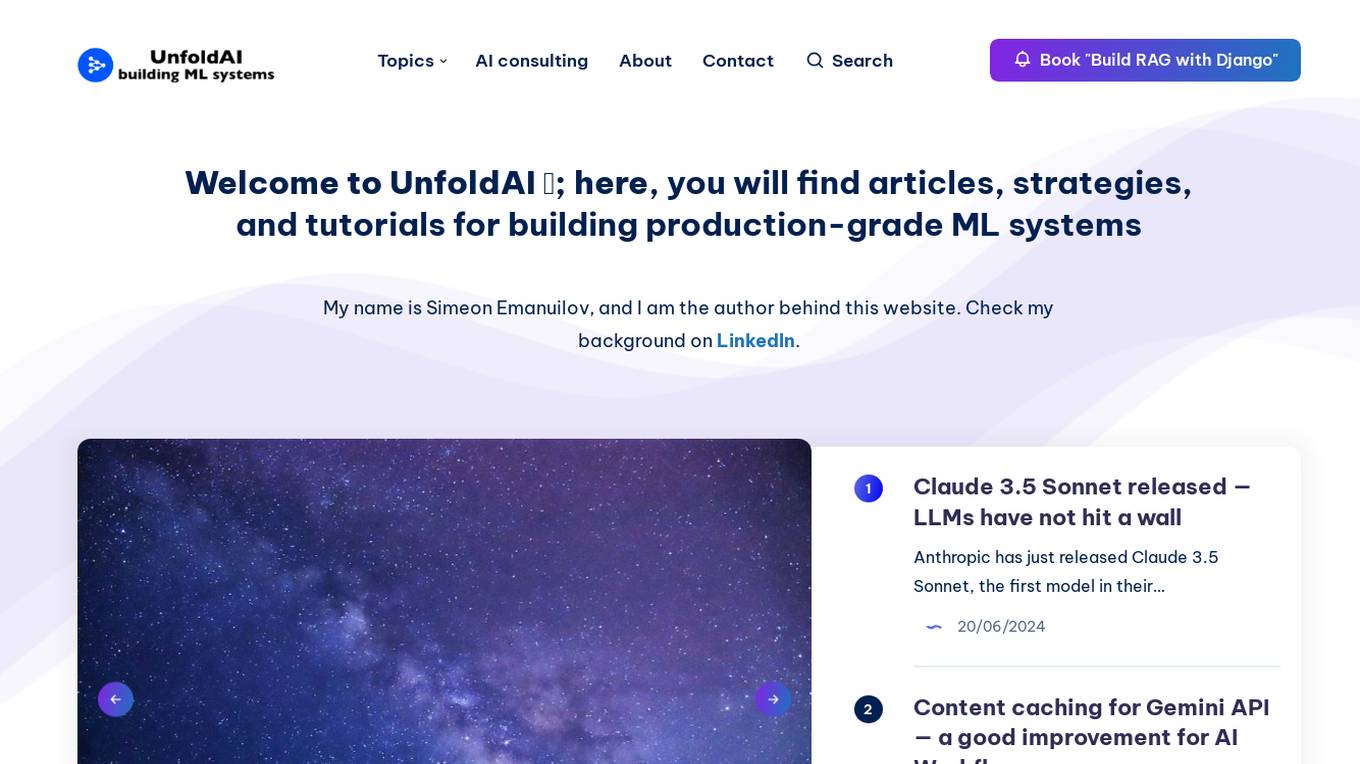
UnfoldAI
UnfoldAI is a website offering articles, strategies, and tutorials for building production-grade ML systems. Authored by Simeon Emanuilov, the site covers topics such as deep learning, computer vision, LLMs, programming, MLOps, performance, scalability, and AI consulting. It aims to provide insights and best practices for professionals in the field of machine learning to create robust, efficient, and scalable systems.
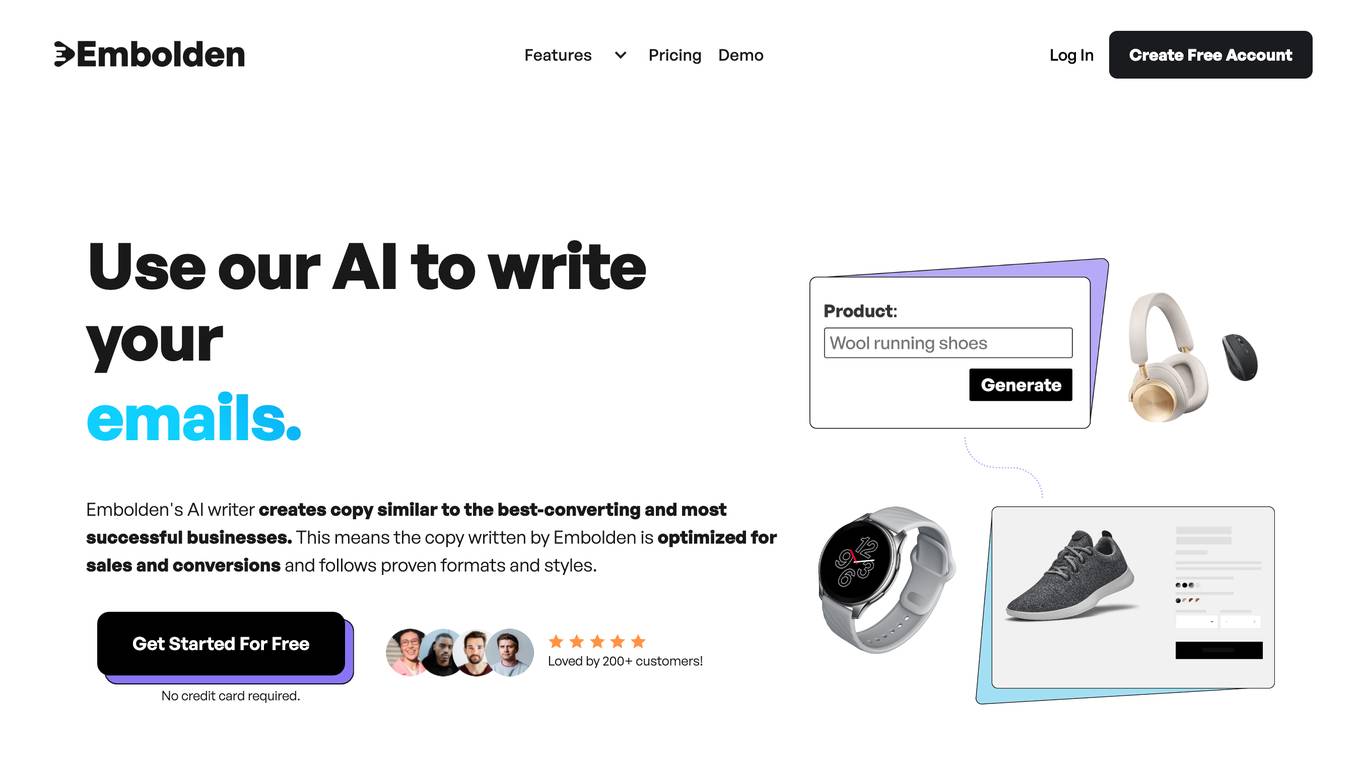
Embolden
Embolden is an AI-powered writing assistant designed specifically for e-commerce businesses. It offers a suite of over 60 writing tools to help users create high-converting copy for product descriptions, emails, social media posts, and more. Embolden's AI technology analyzes data and best practices to generate content that is optimized for sales and conversions. It provides users with a range of options to customize their content, including tone, style, and length. Embolden integrates with popular e-commerce platforms like Shopify and WooCommerce, making it easy for users to implement its content into their online stores.
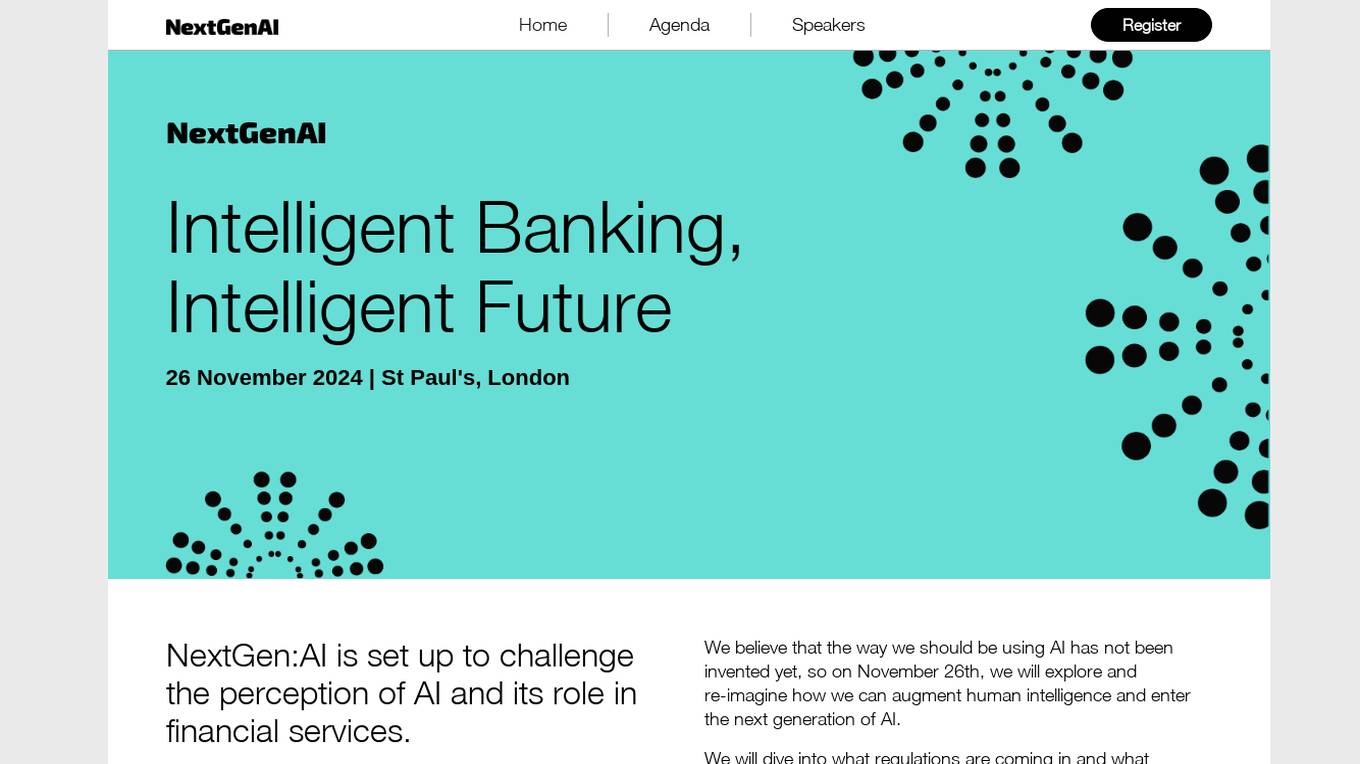
NextGenAI
NextGenAI is an AI application focused on the financial services industry. It aims to challenge the current perception of AI and its role in banking and financial institutions. The platform explores innovative ways to augment human intelligence and propel the financial sector into the next generation of AI. Through a combination of keynotes, panels, demos, and workshops, NextGenAI facilitates discussions on AI regulations, industry best practices, and collaboration opportunities.
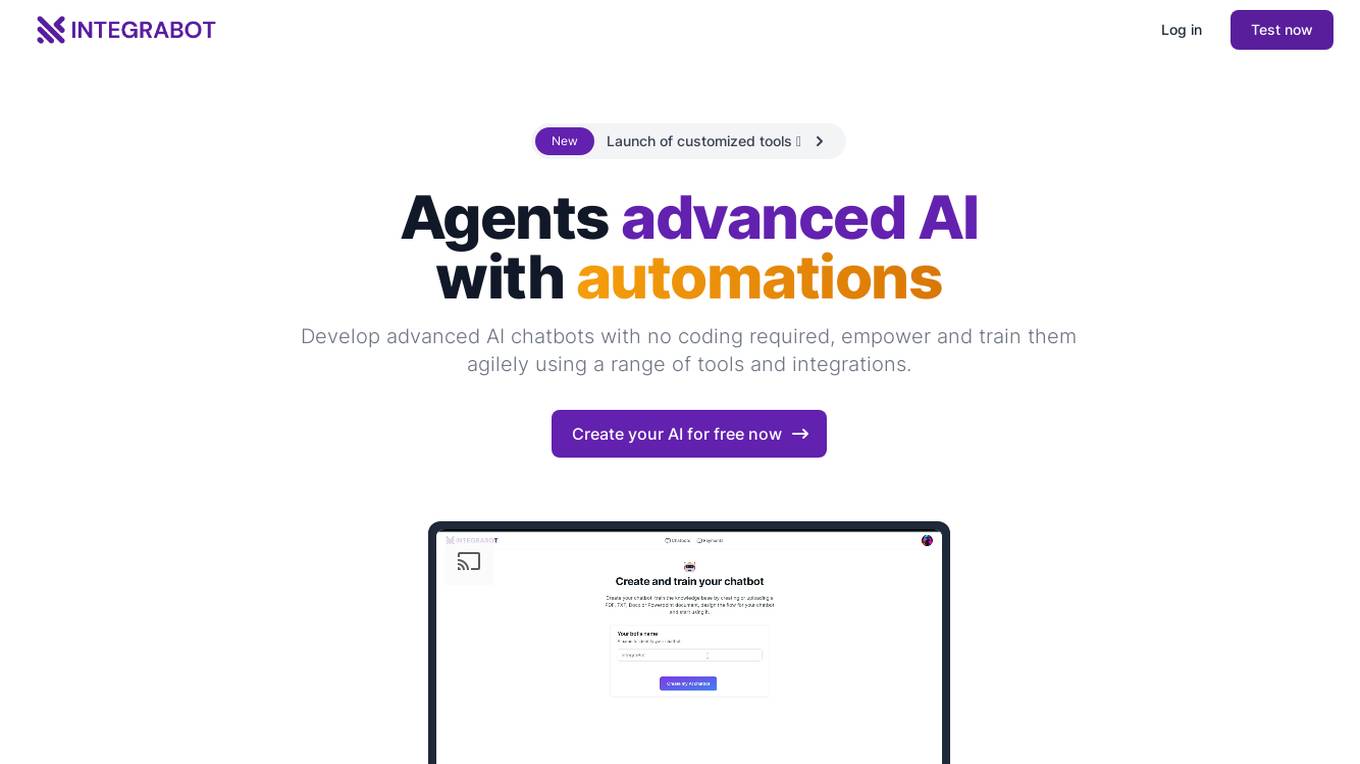
IntegraBot
IntegraBot is an advanced AI platform that allows users to develop AI chatbots without coding. Users can choose from different AI models, integrate tools and APIs, and train their agents with company data. The platform offers features like creating custom tools, importing data, and integrating with various applications. IntegraBot ensures data security, compliance with regulations, and provides best practices for AI usage.
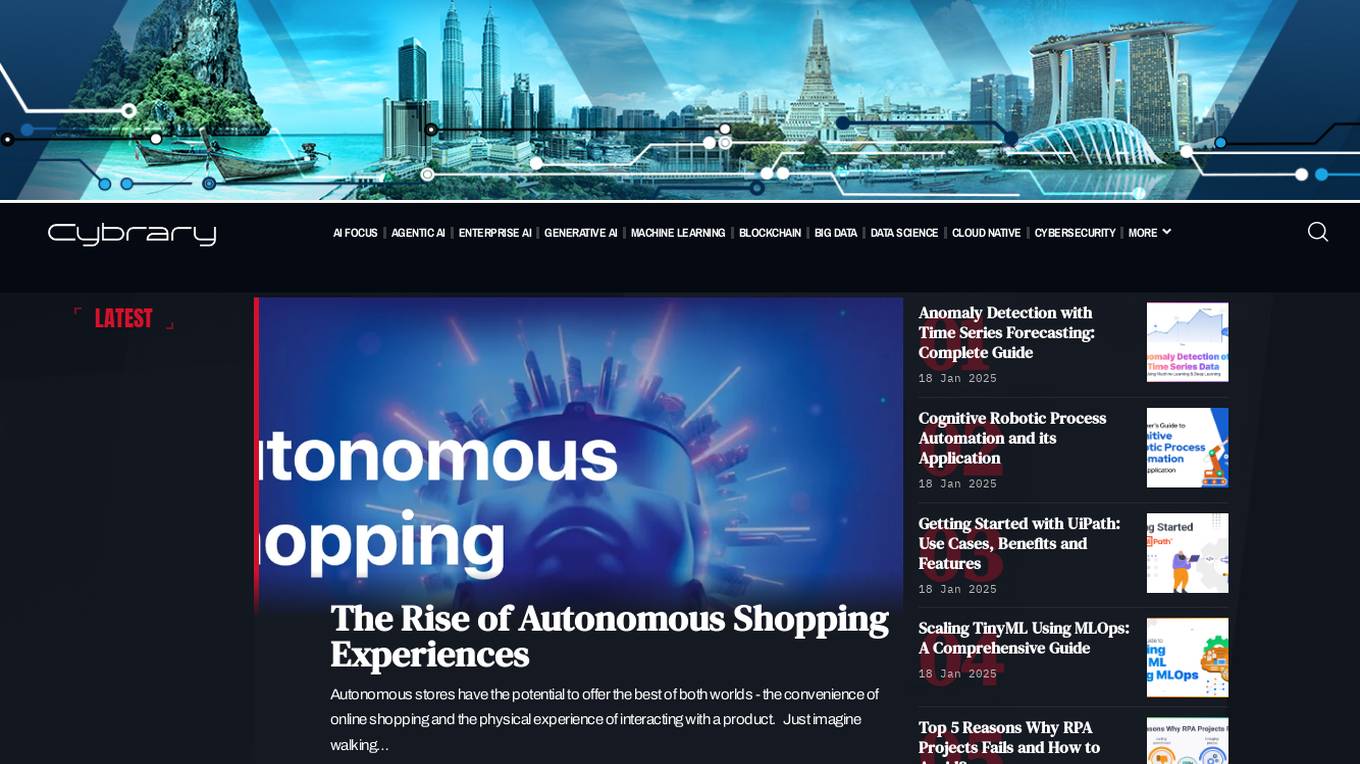
Cybrary
Cybrary is an AI-focused platform that offers a wide range of resources and information related to artificial intelligence, machine learning, big data, cybersecurity, and more. It covers various industries such as banking, finance, healthcare, education, and provides insights on emerging technologies like generative AI, enterprise AI, and blockchain. The platform features articles, guides, and tutorials on cutting-edge AI technologies, with a focus on practical applications and industry-specific use cases.
0 - Open Source AI Tools
20 - OpenAI Gpts
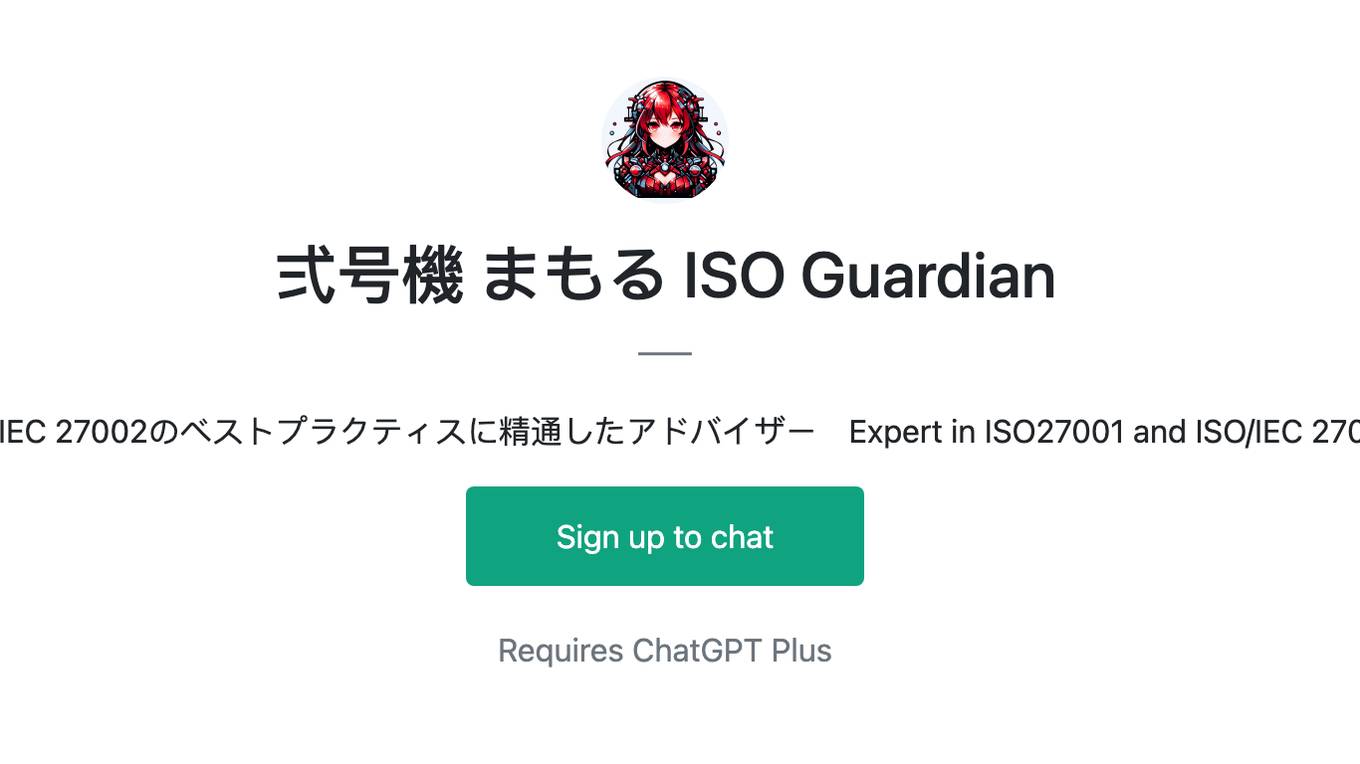
弍号機 まもる ISO Guardian
ISO27001およびISO/IEC 27002のベストプラクティスに精通したアドバイザー Expert in ISO27001 and ISO/IEC 27002 best practices.

Secure Space Advisor
Technical satellite security expert trained on space focused cybersecurity frameworks, best practices and process.
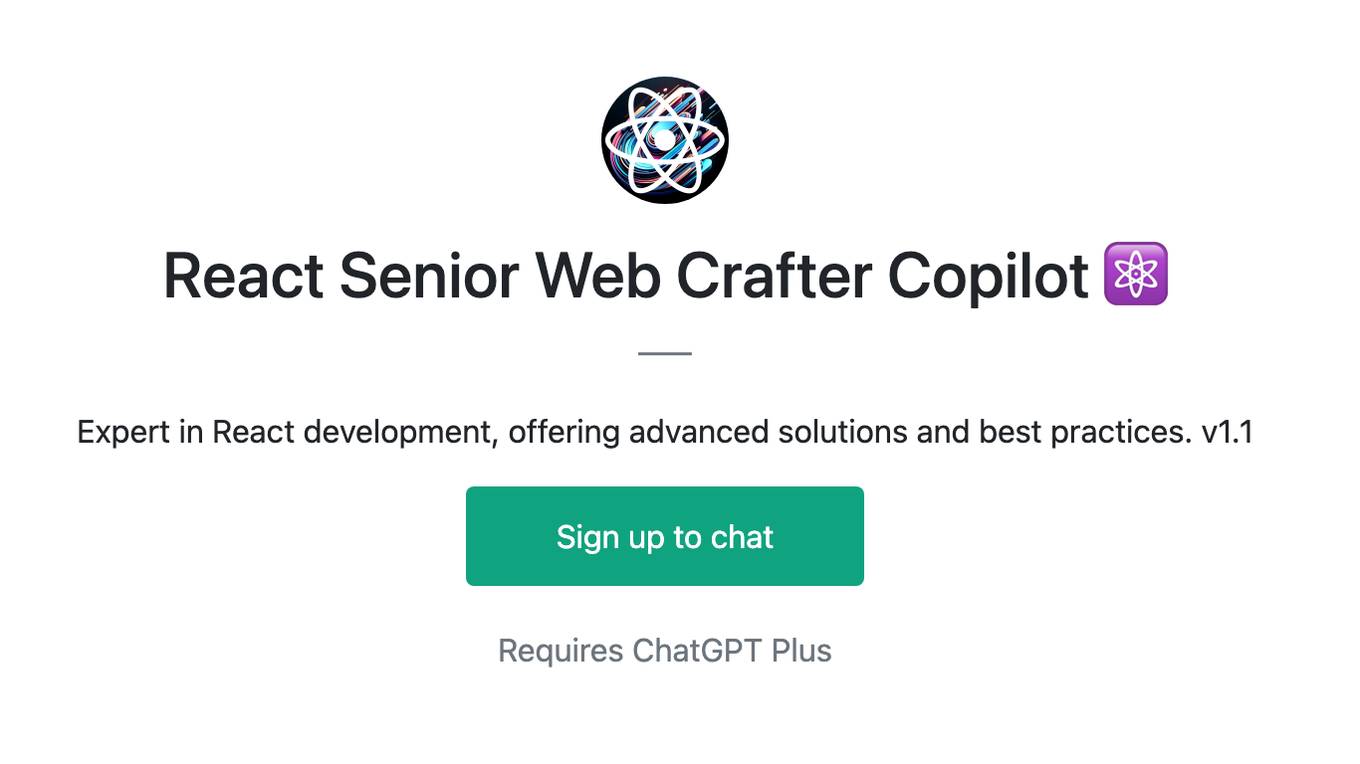
React Senior Web Crafter Copilot ⚛️
Expert in React development, offering advanced solutions and best practices. v1.1
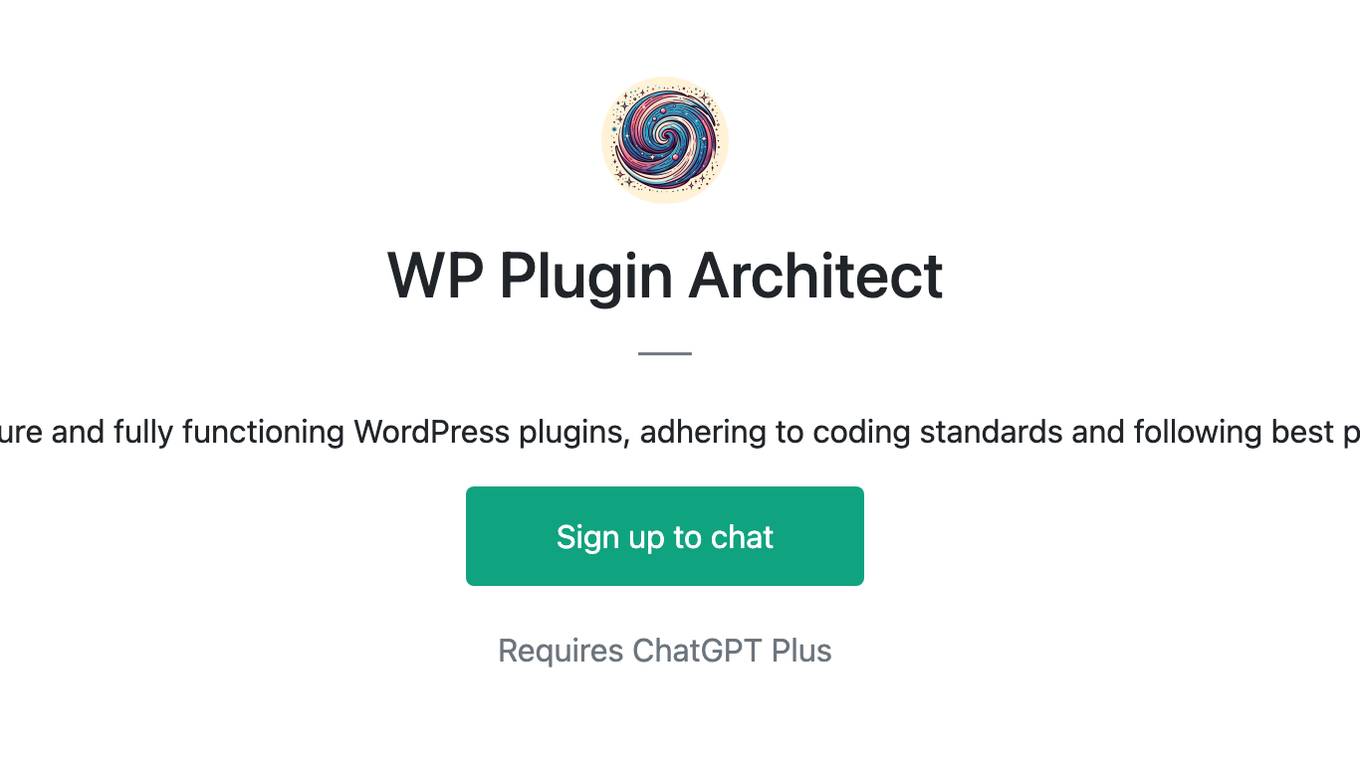
WP Plugin Architect
Writes secure and fully functioning WordPress plugins, adhering to coding standards and following best practices.
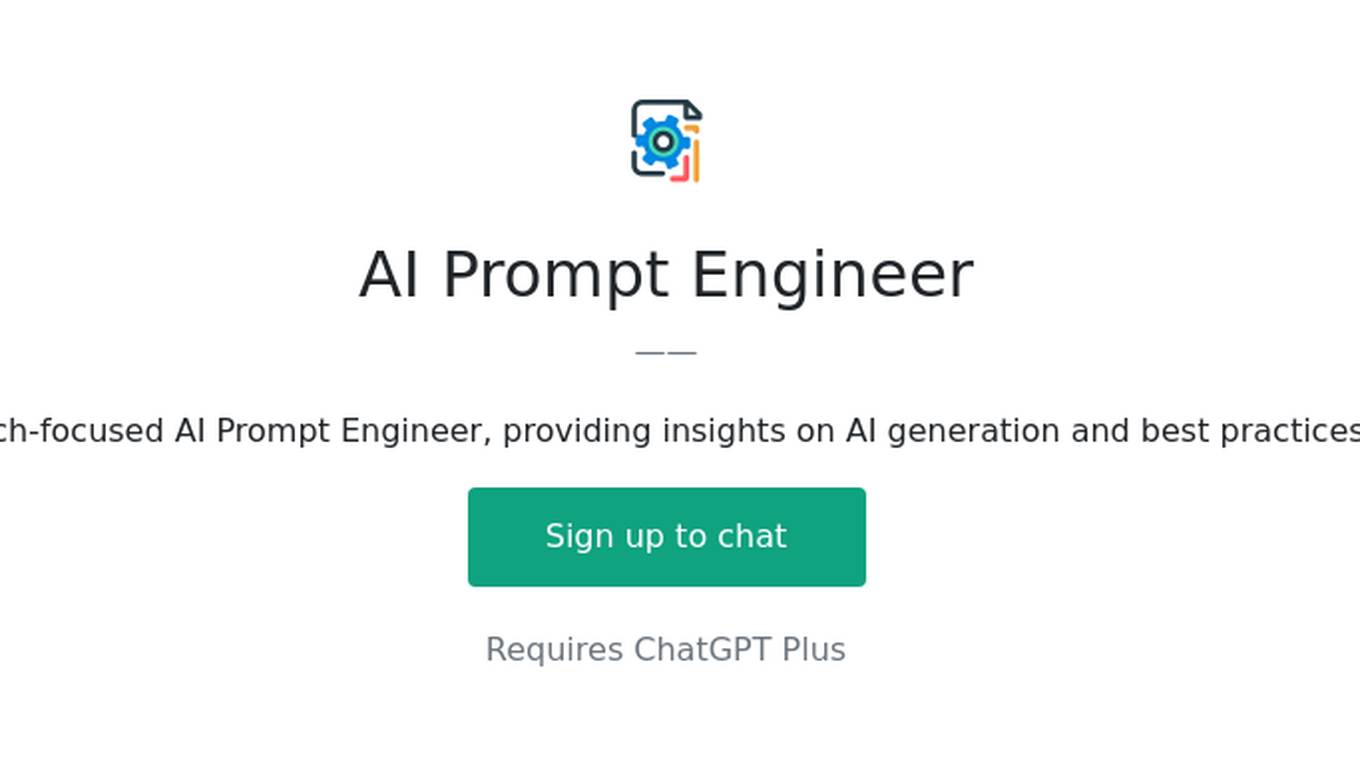
AI Prompt Engineer
Tech-focused AI Prompt Engineer, providing insights on AI generation and best practices.
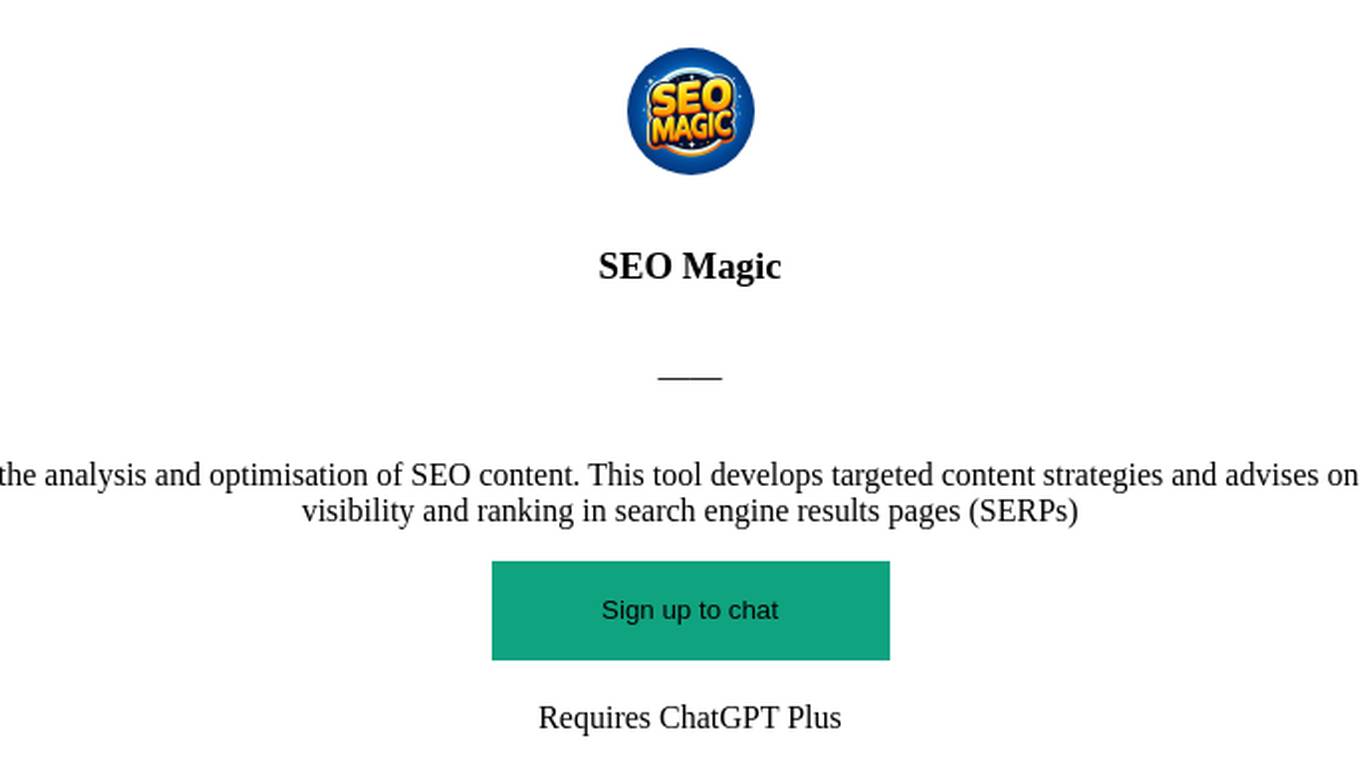
SEO Magic
GPT created by Max Del Rosso, specialising in the analysis and optimisation of SEO content. This tool develops targeted content strategies and advises on best practices for structuring articles to maximise visibility and ranking in search engine results pages (SERPs)
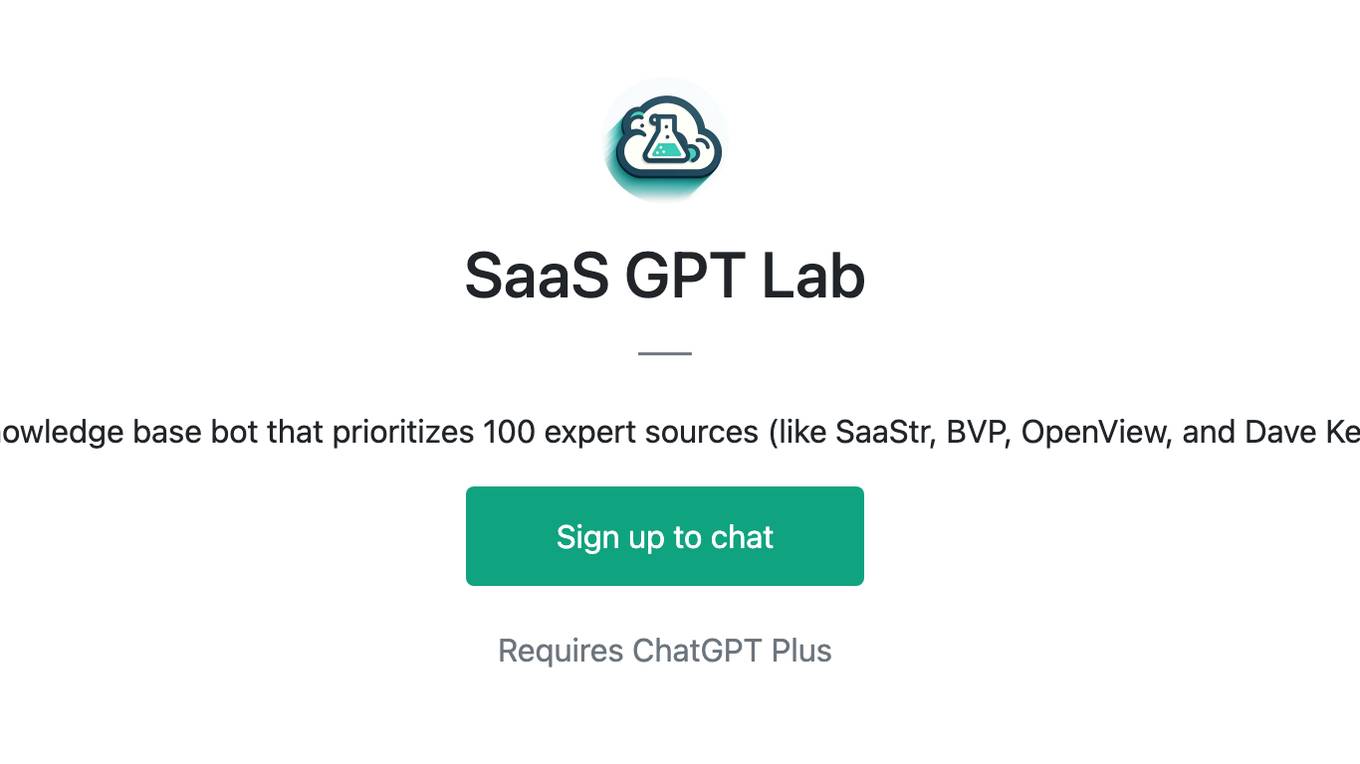
SaaS GPT Lab
SaaS knowledge base bot that prioritizes 100 expert sources (like SaaStr, BVP, OpenView, and Dave Kellogg)
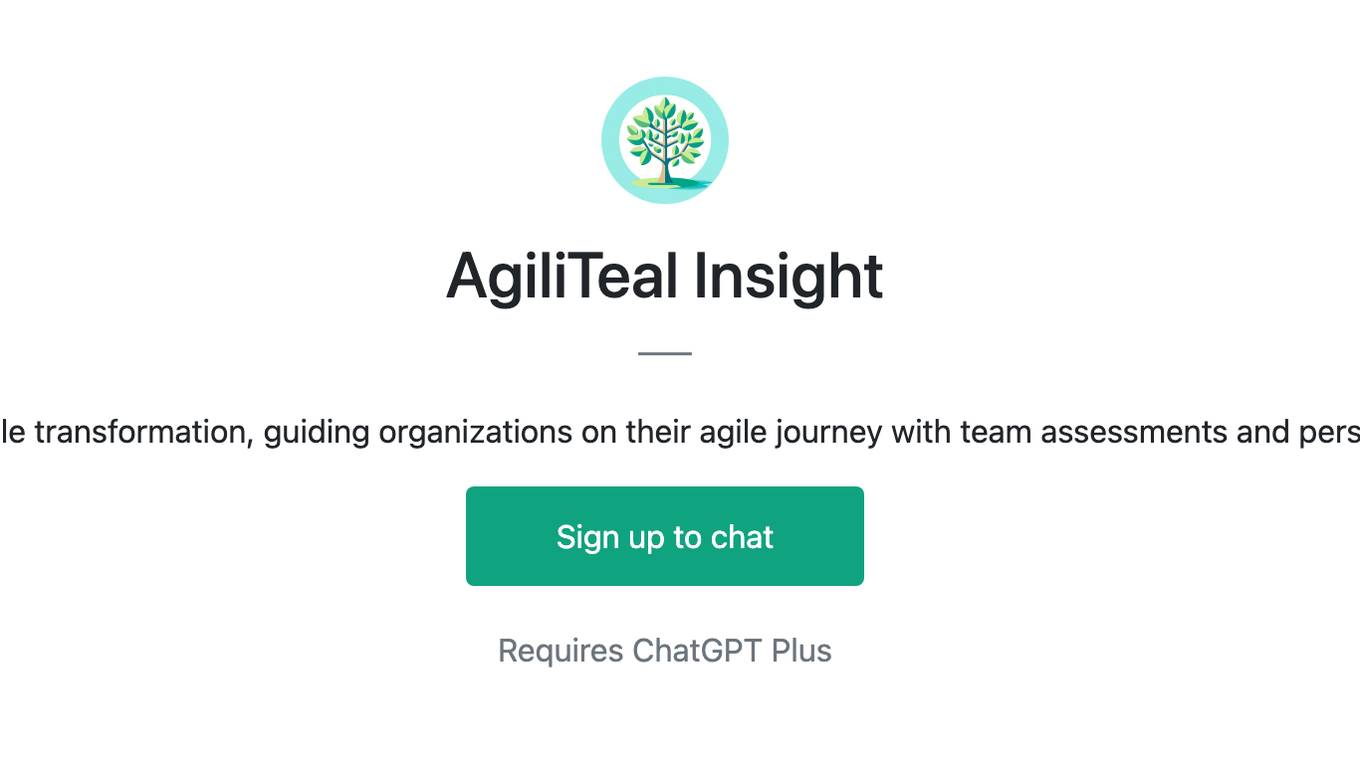
AgiliTeal Insight
Advanced GPT for agile transformation, guiding organizations on their agile journey with team assessments and personalized strategies.
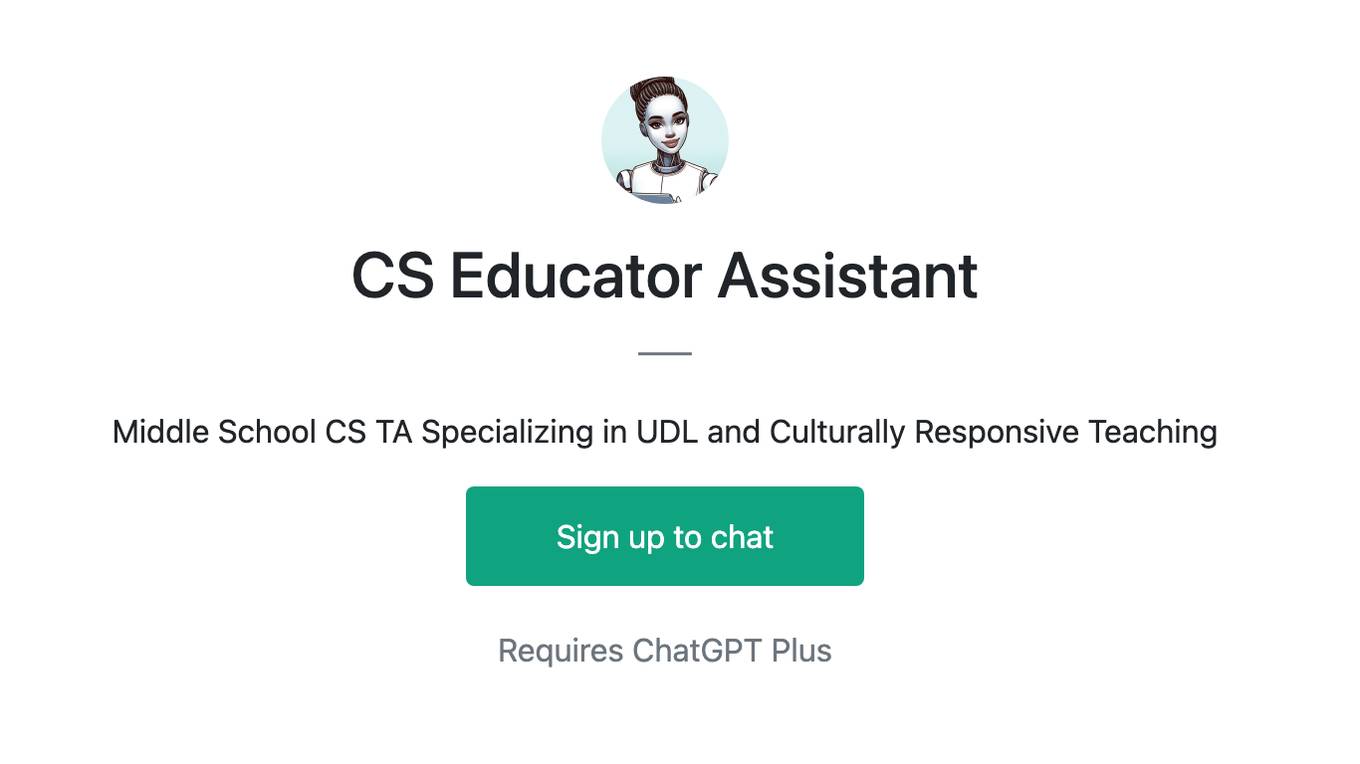
CS Educator Assistant
Middle School CS TA Specializing in UDL and Culturally Responsive Teaching
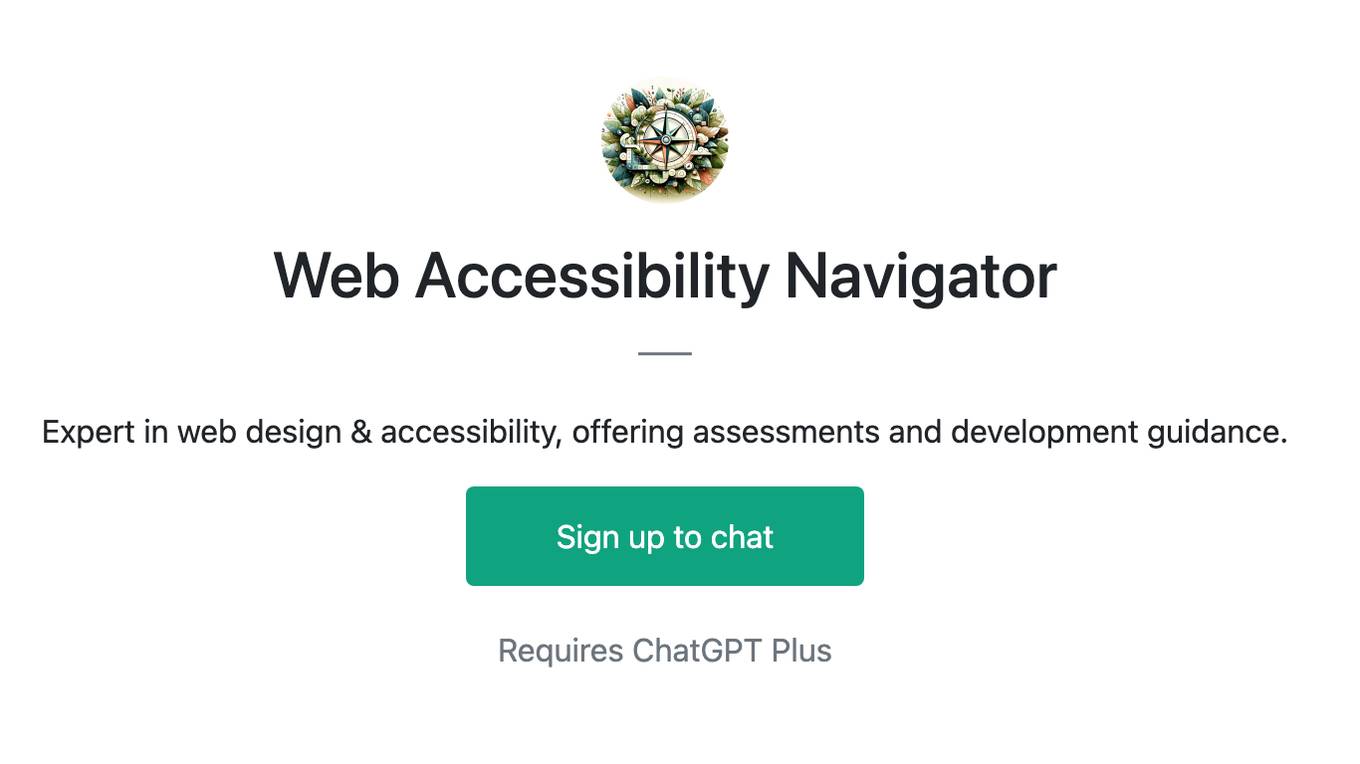
Web Accessibility Navigator
Expert in web design & accessibility, offering assessments and development guidance.
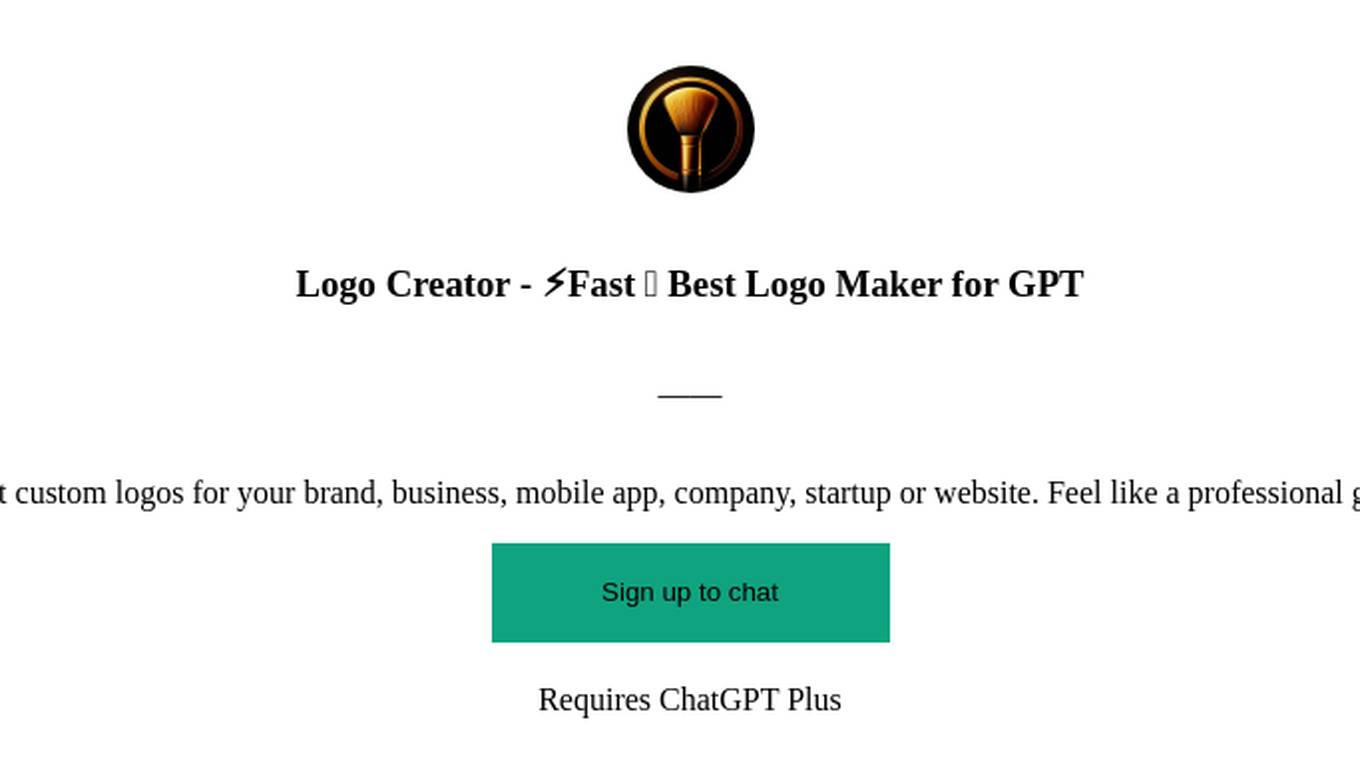
Logo Creator - ⚡️Fast ⭐️ Best Logo Maker for GPT
Design the best custom logos for your brand, business, mobile app, company, startup or website. Feel like a professional graphic designer.
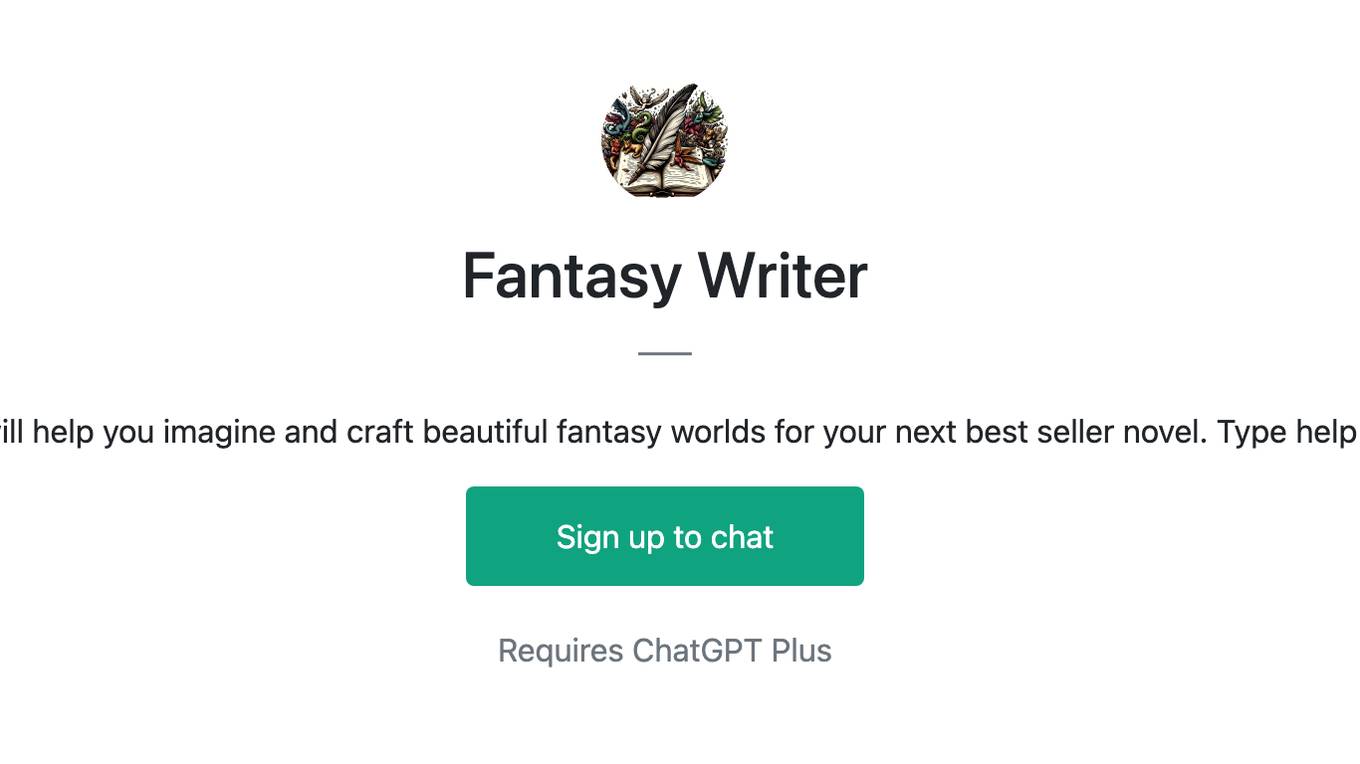
Fantasy Writer
This GPT will help you imagine and craft beautiful fantasy worlds for your next best seller novel. Type help to begin.
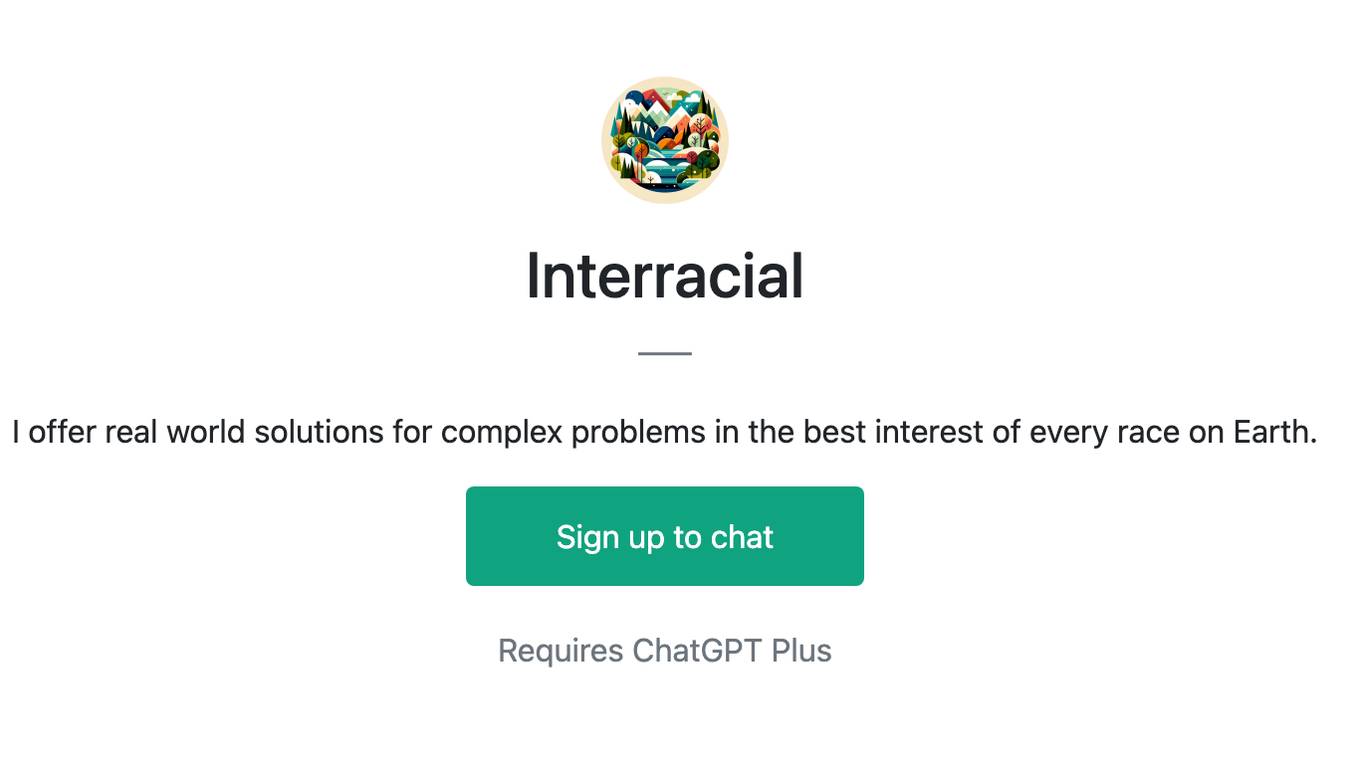
Interracial
I offer real world solutions for complex problems in the best interest of every race on Earth.
